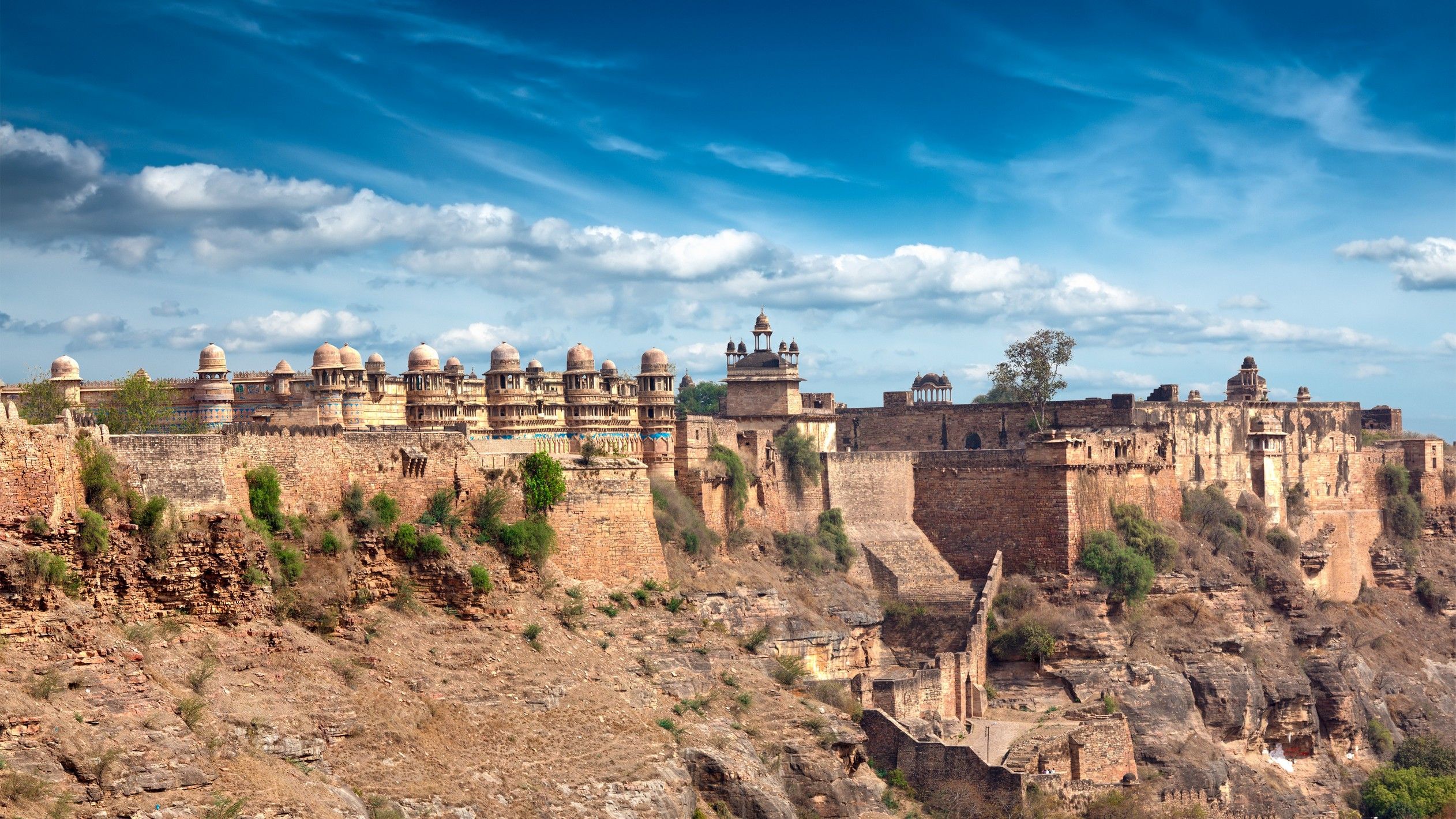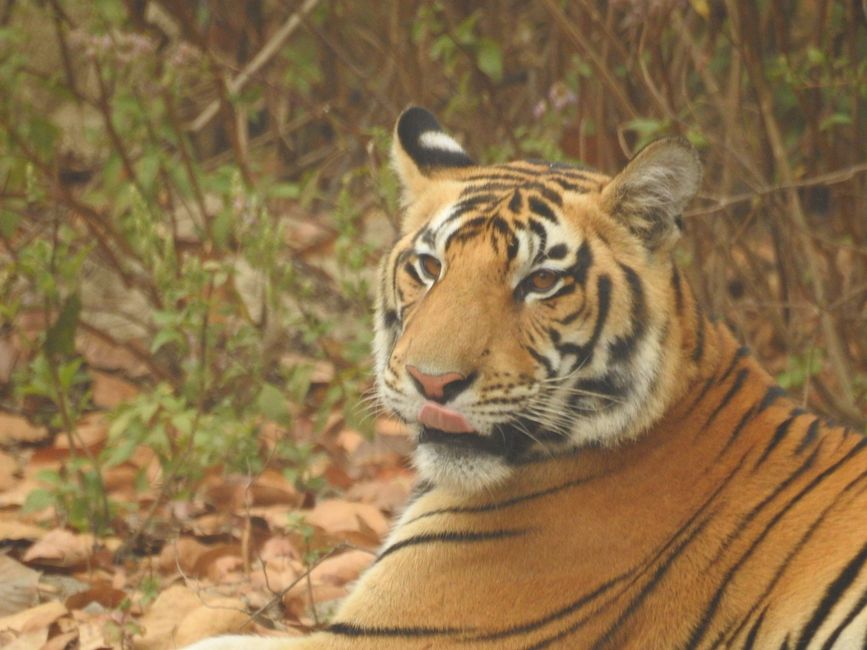
steiners-incredible-india-2024
vakantio.de/steiners-incredible-india-2024
BLOG 17 Sawai Madhopur & Ranthambore National Park
പ്രസിദ്ധീകരിച്ചു: 17.03.2024
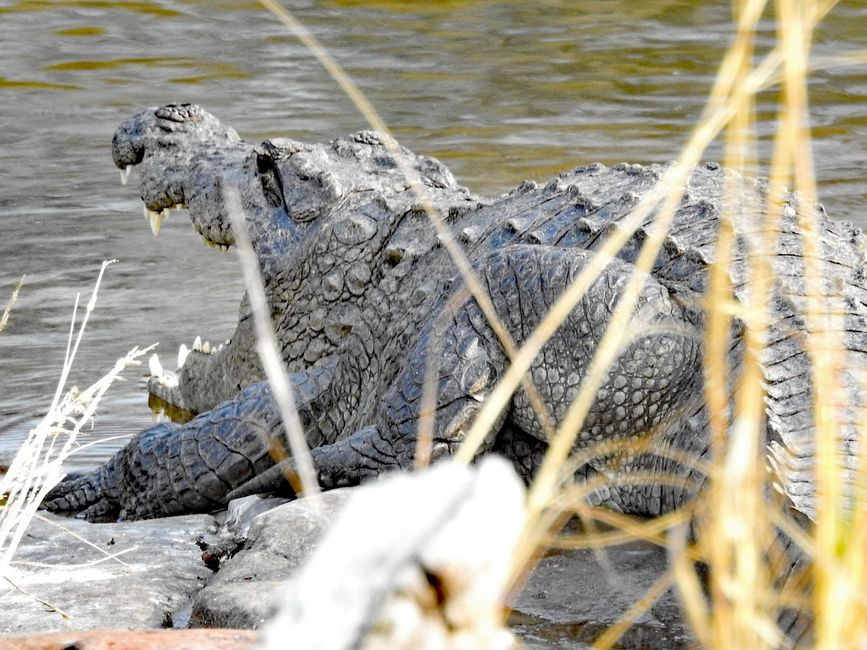
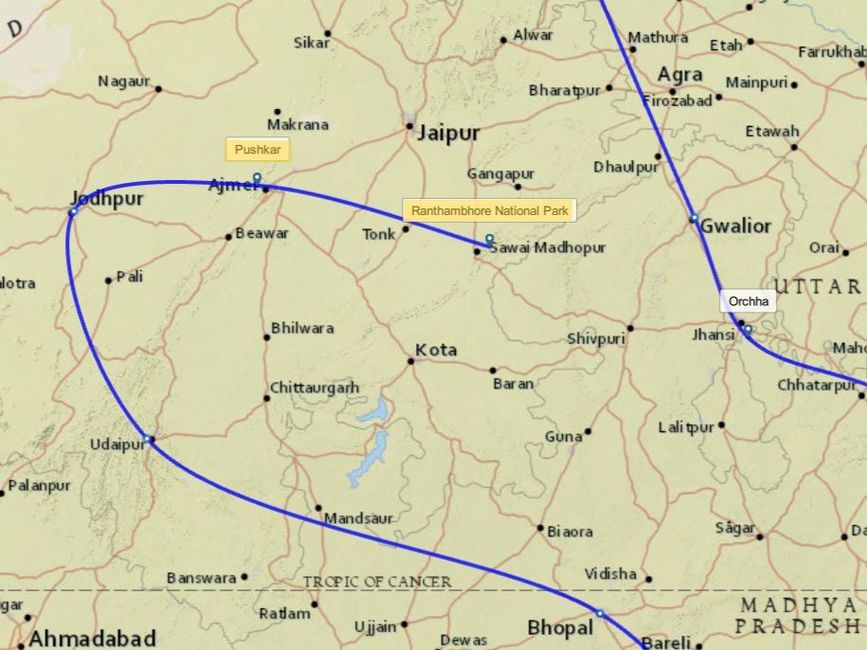
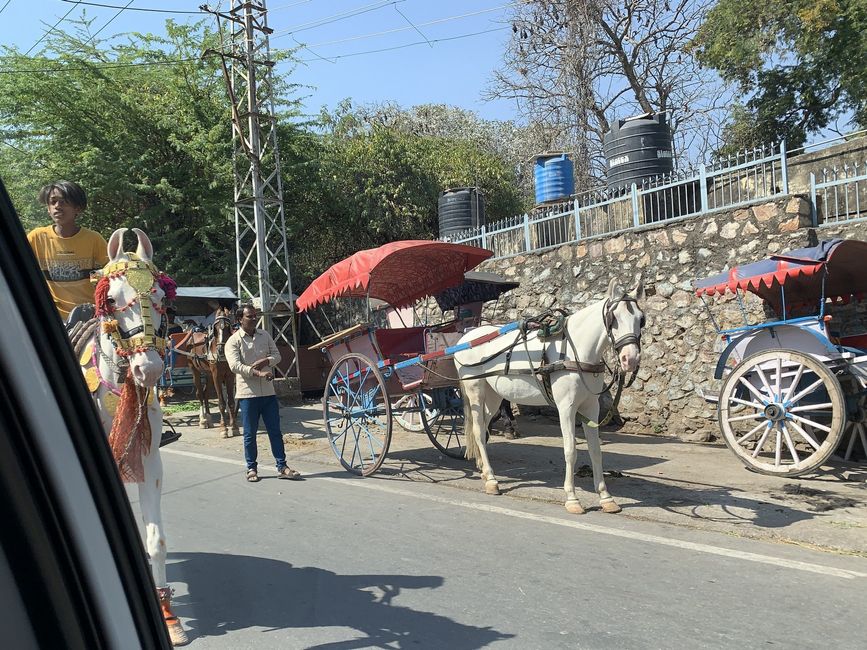
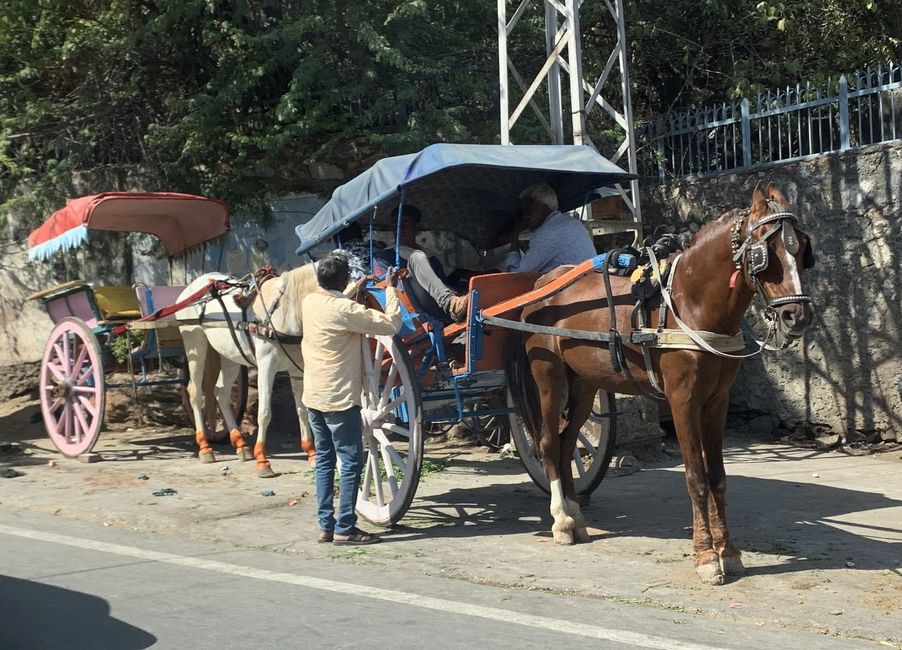
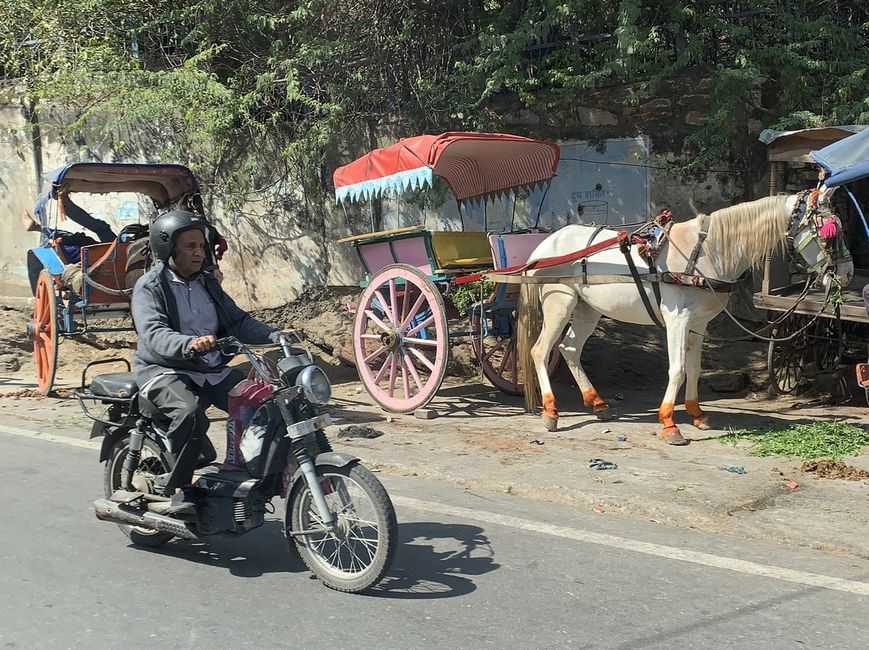
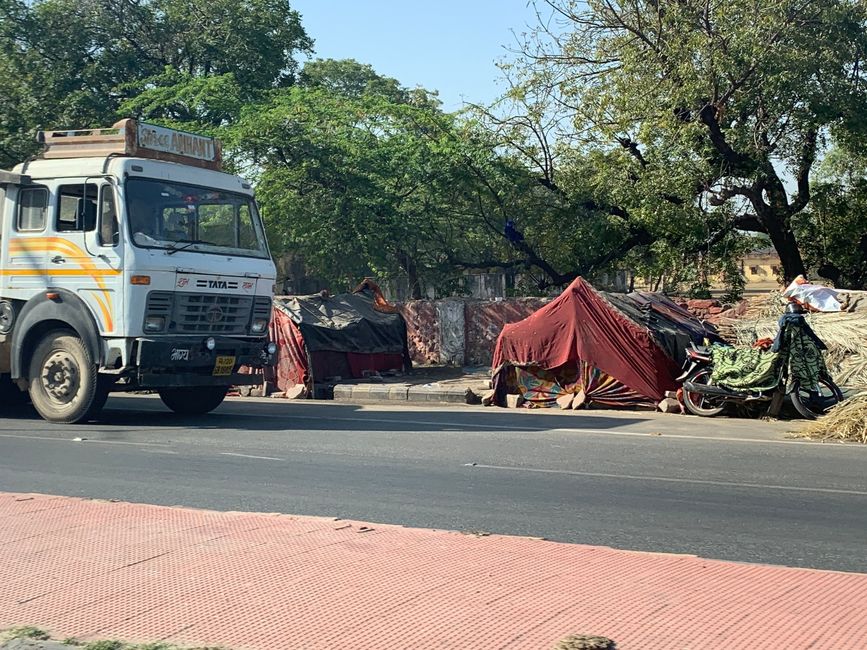
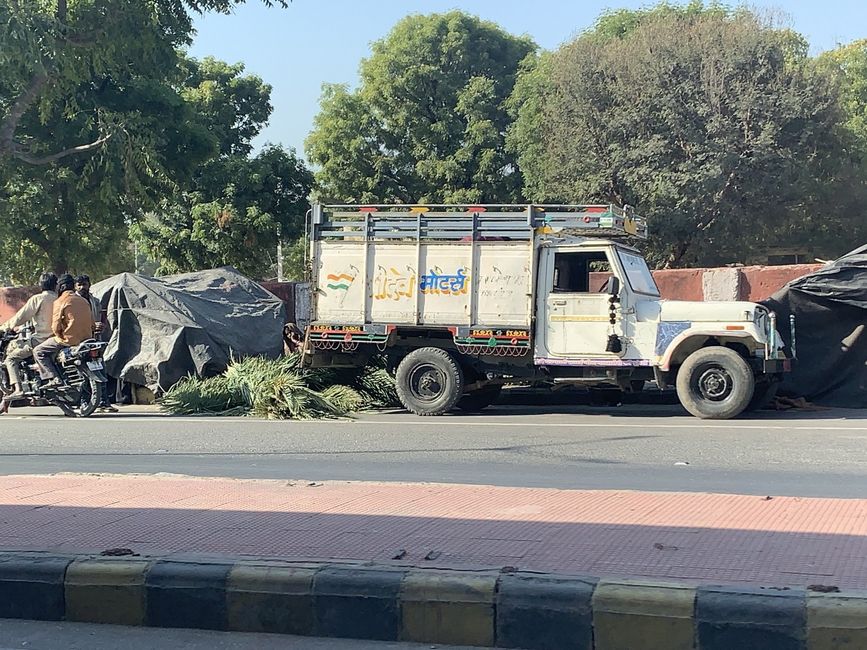
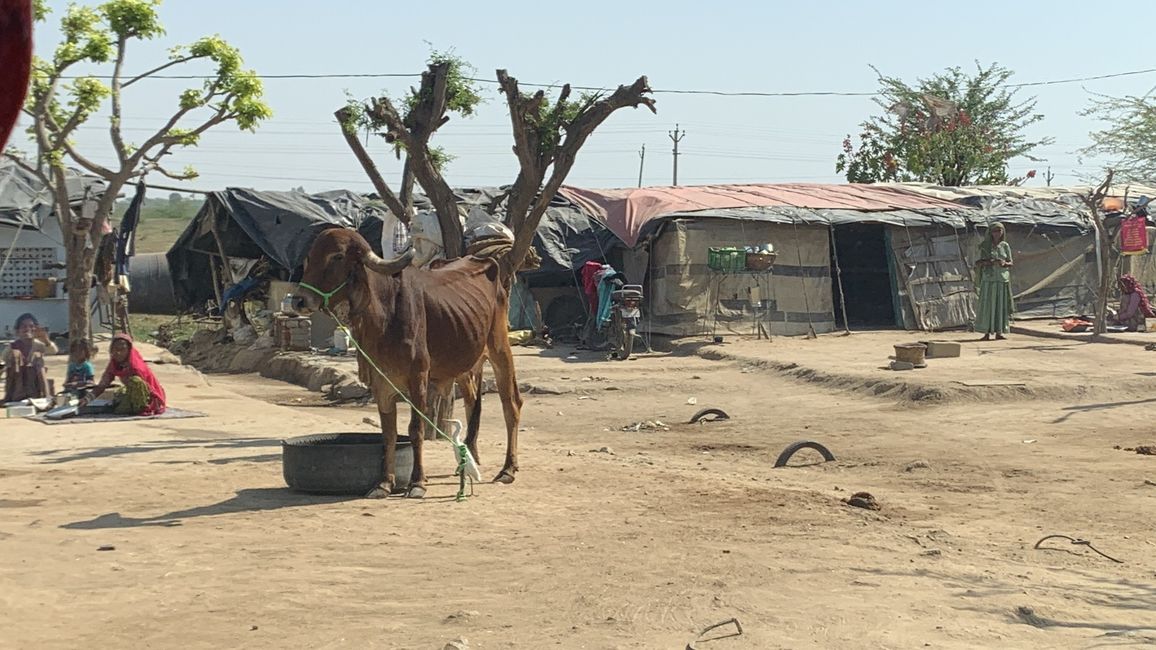
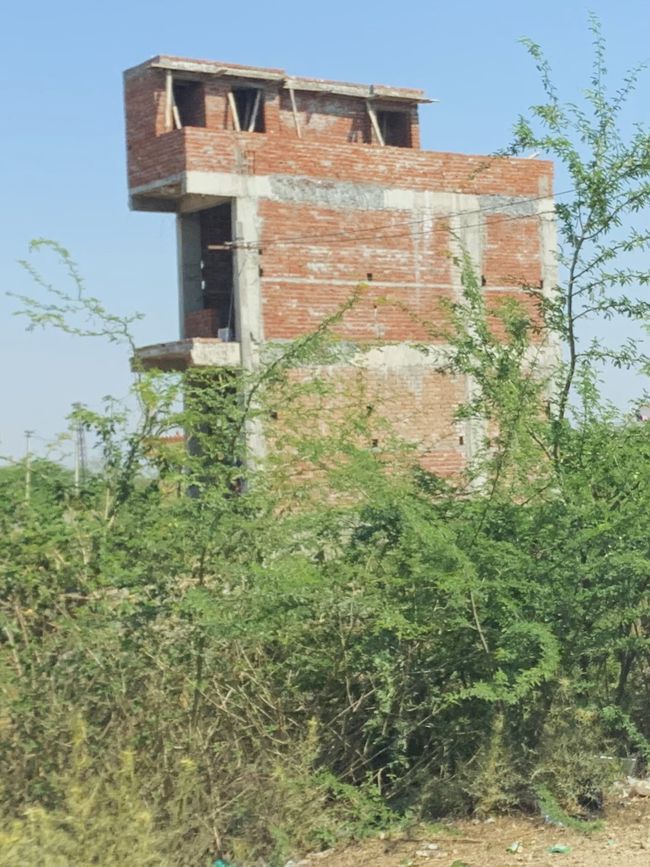
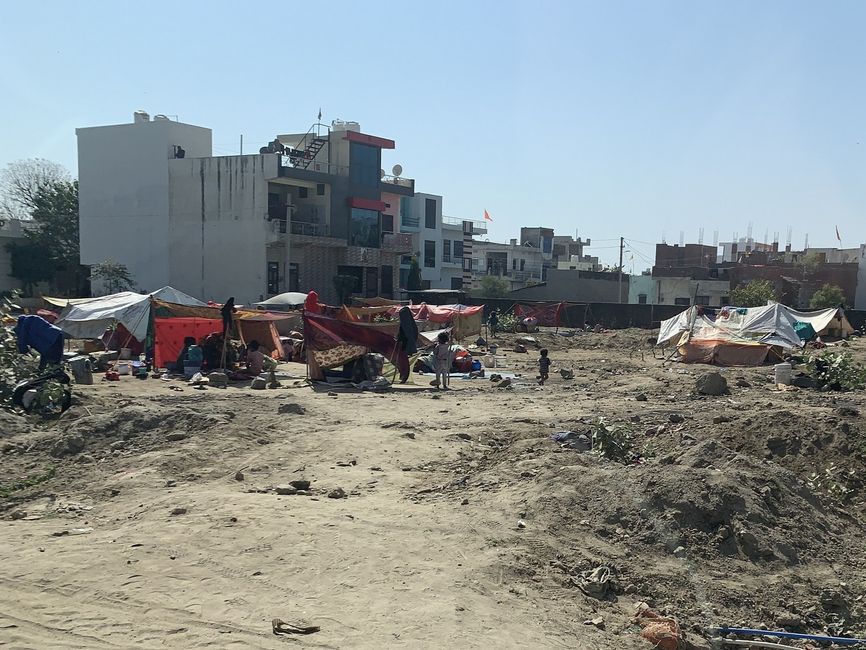
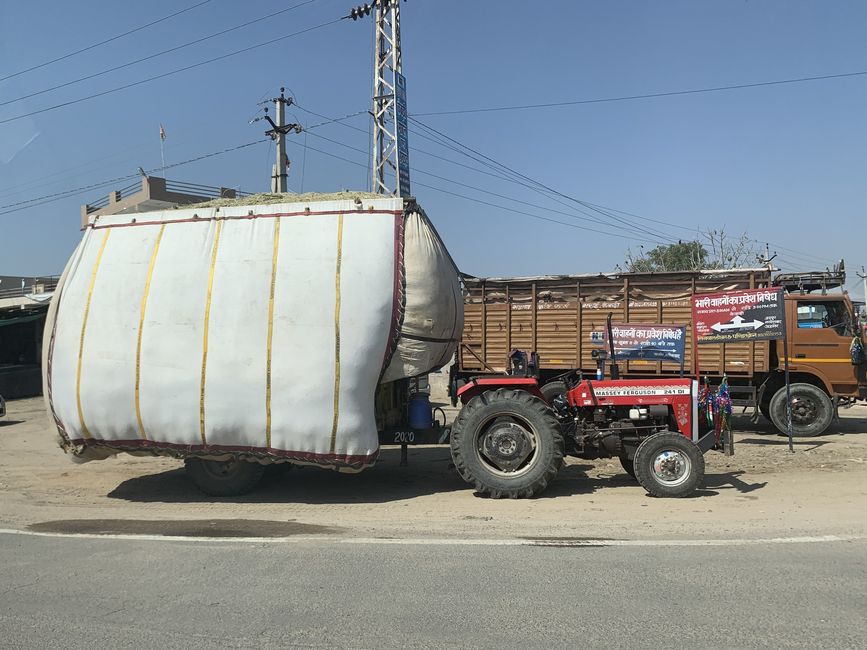
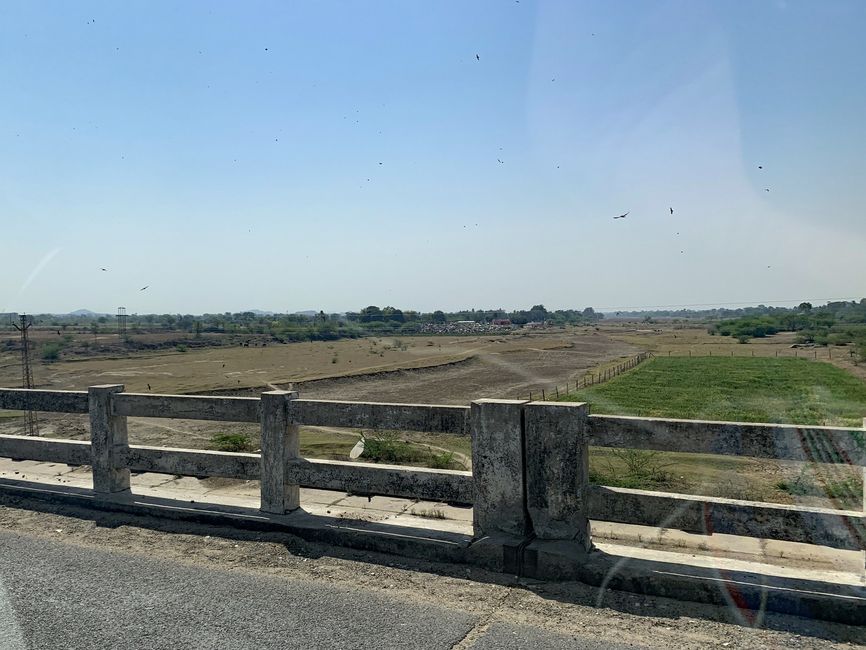
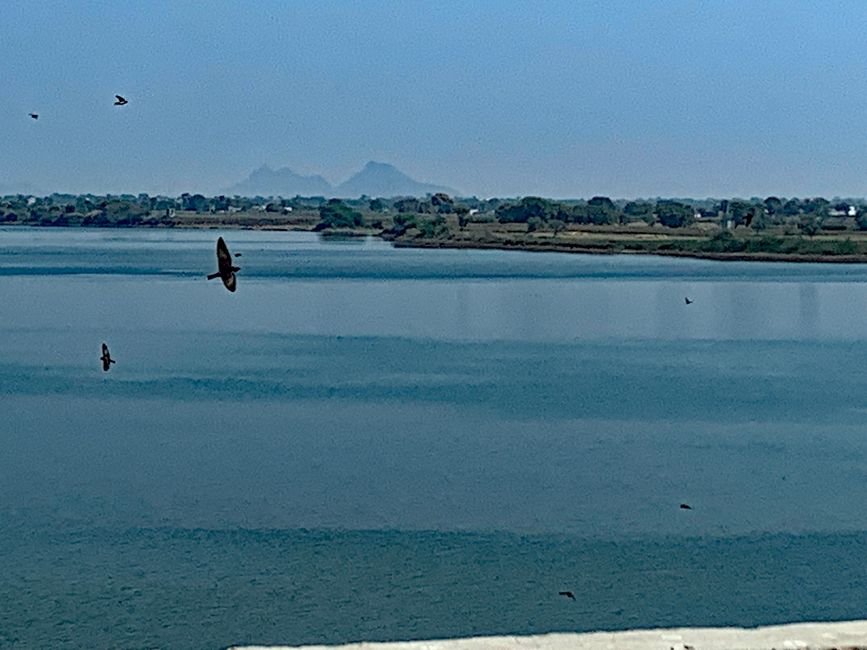
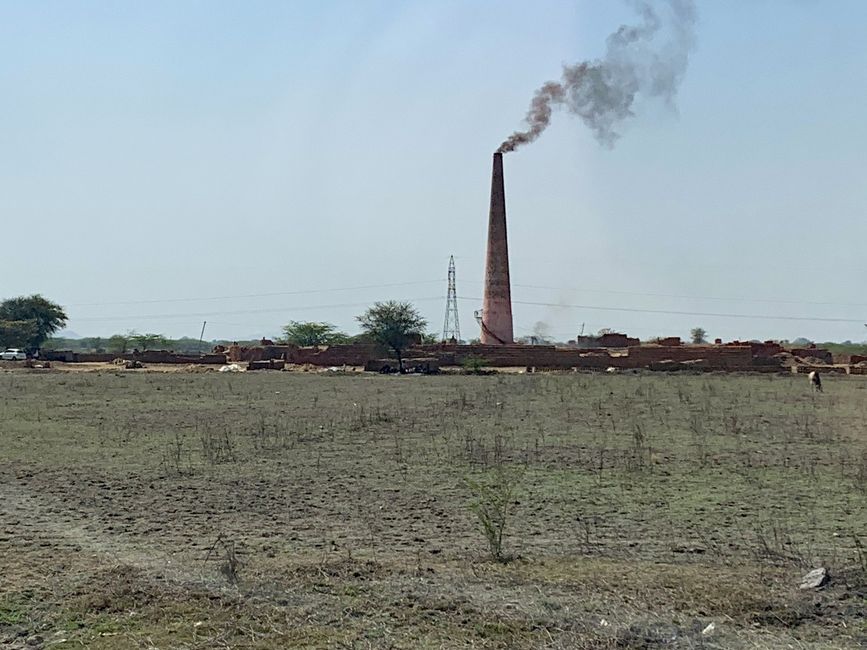
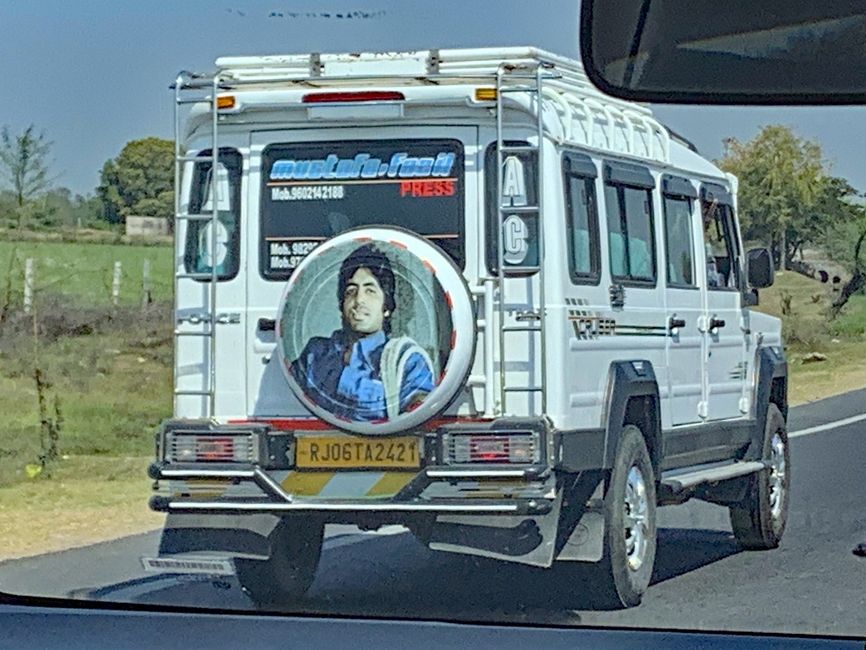
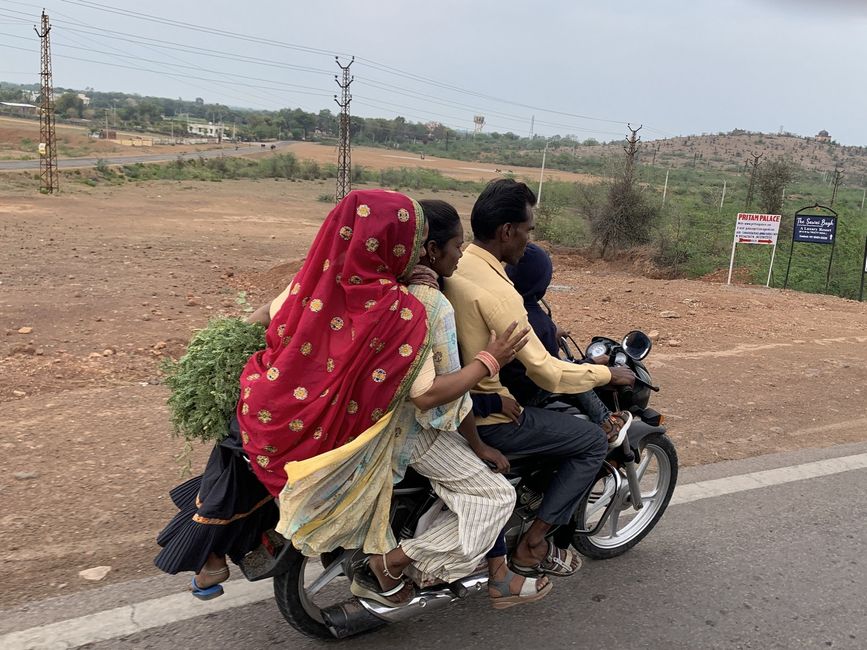
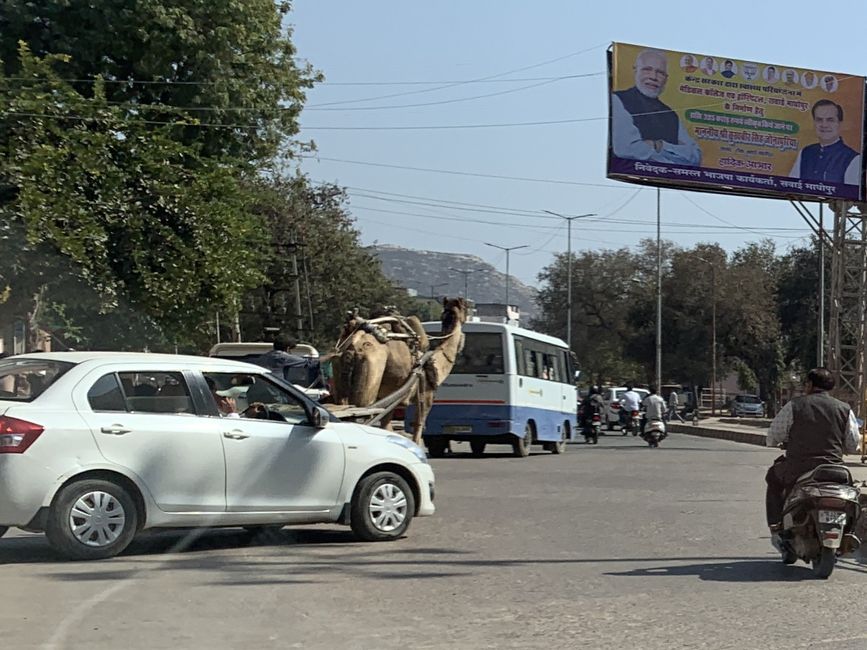
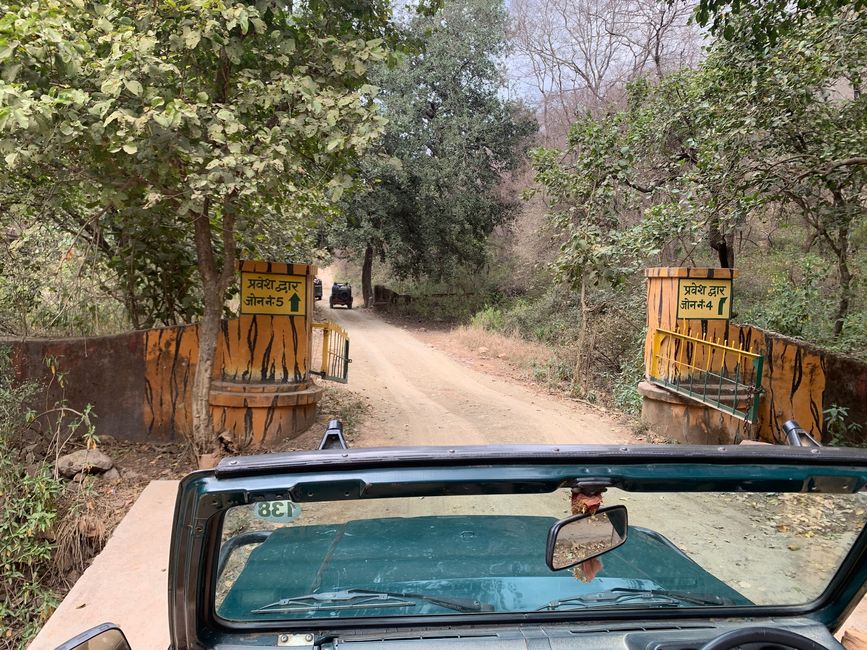
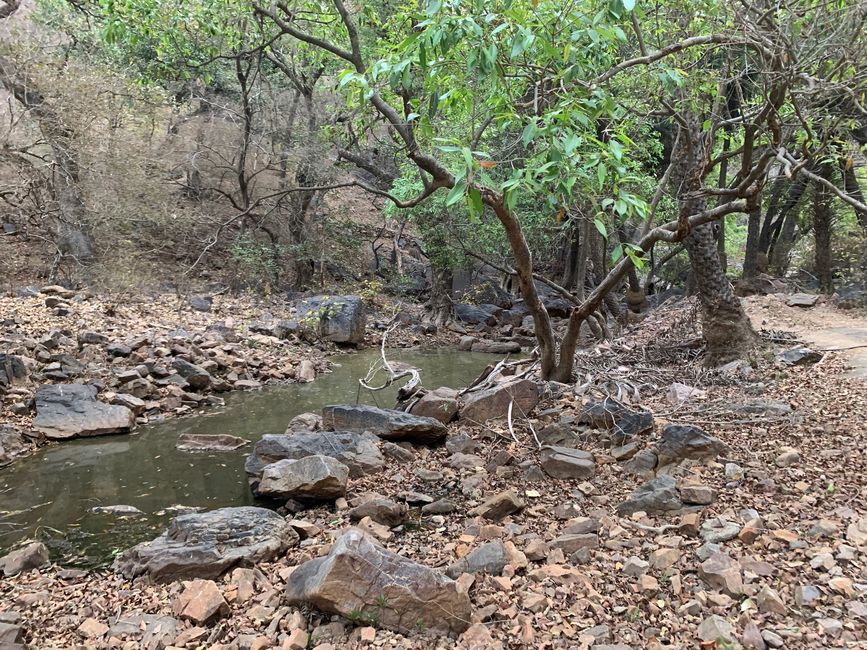
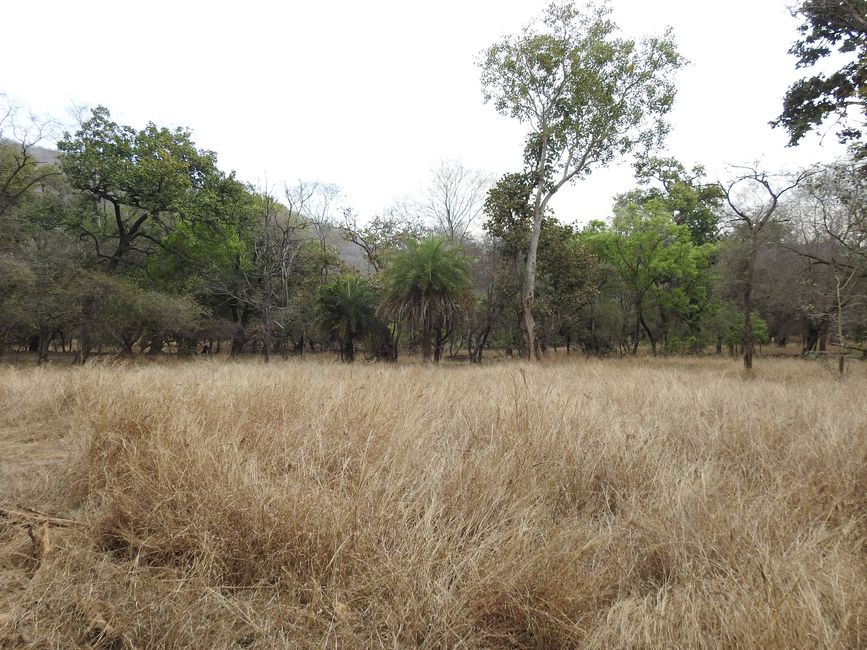
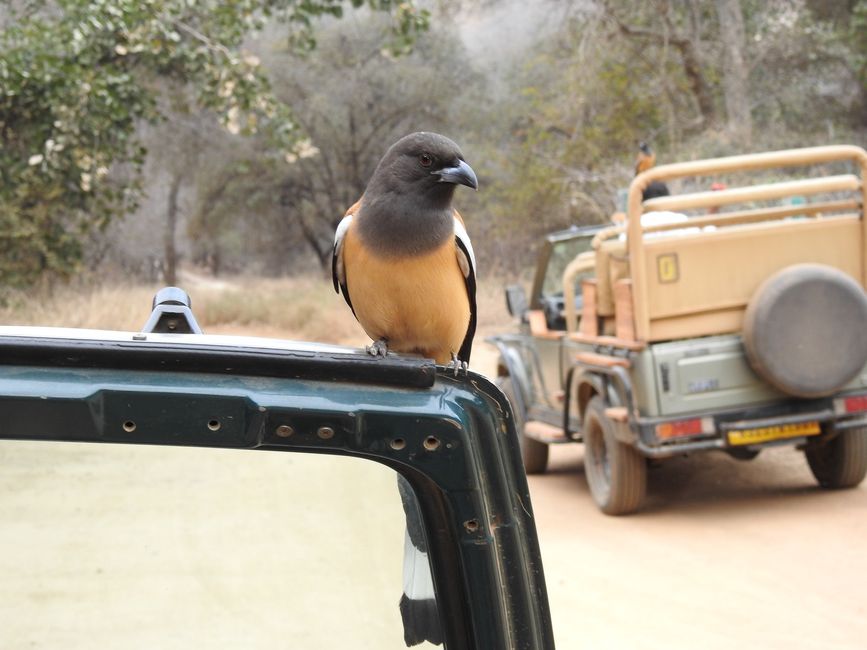
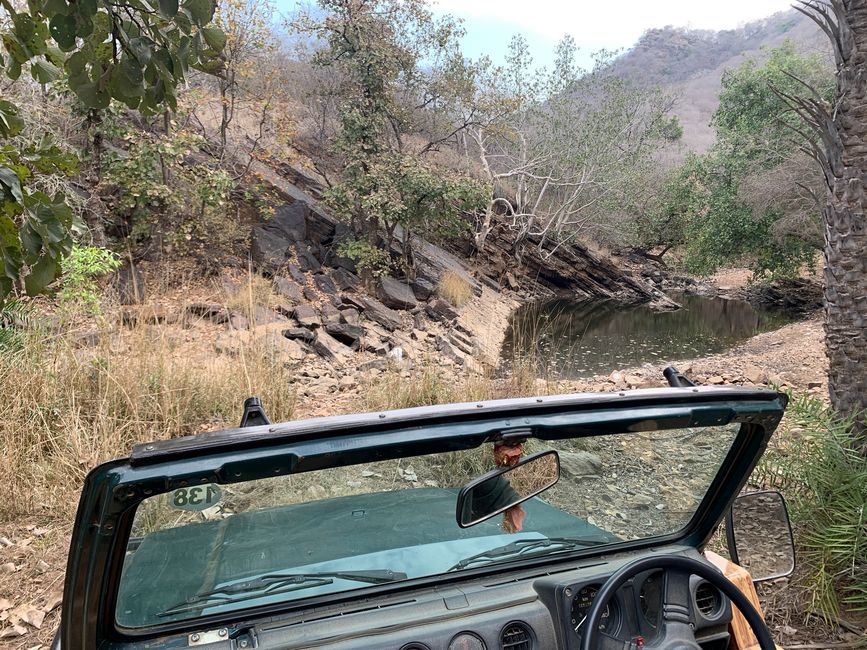
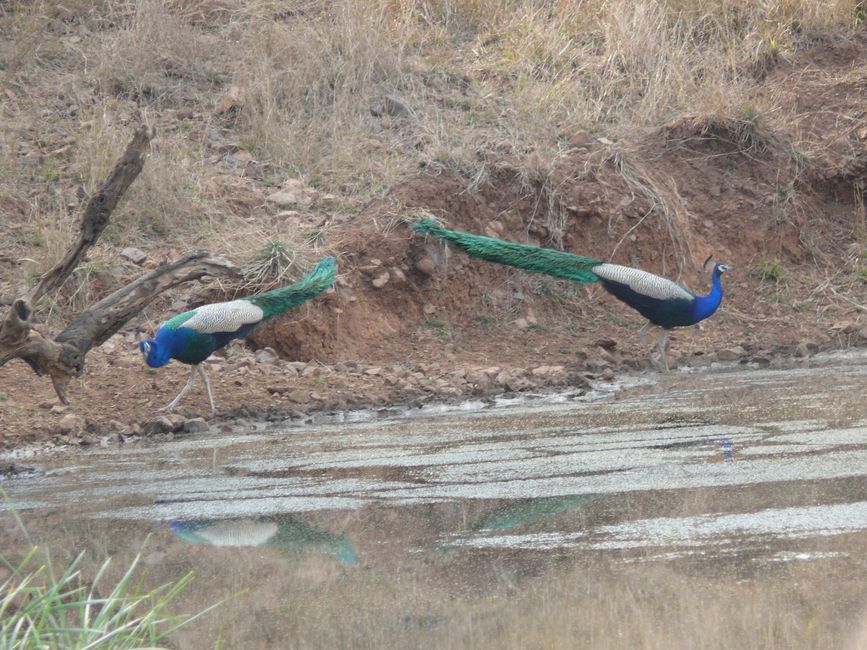
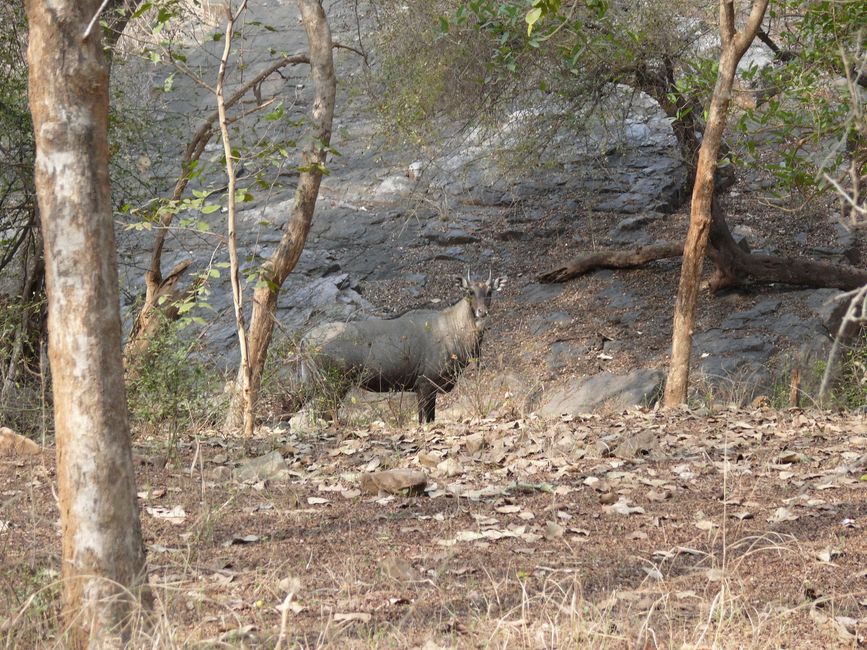
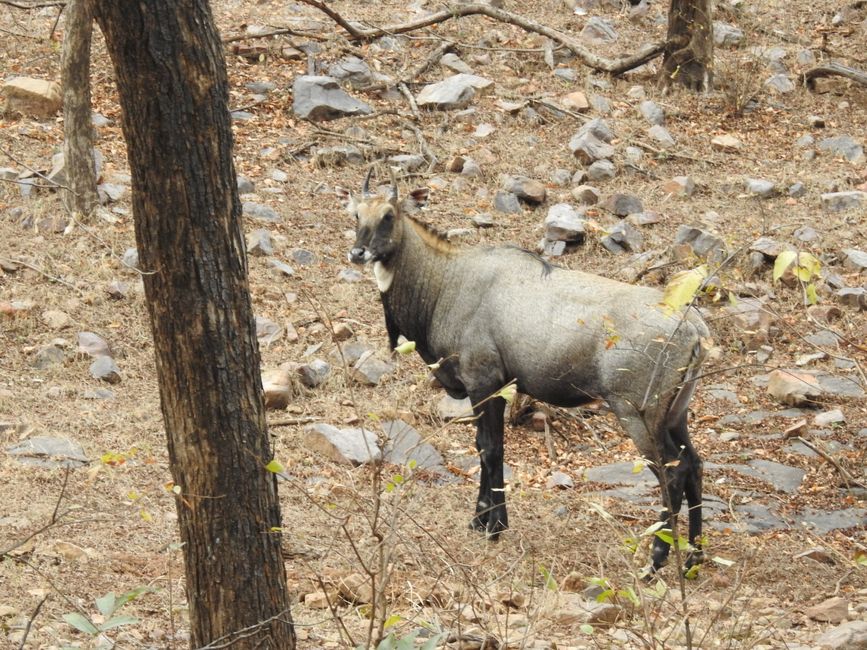
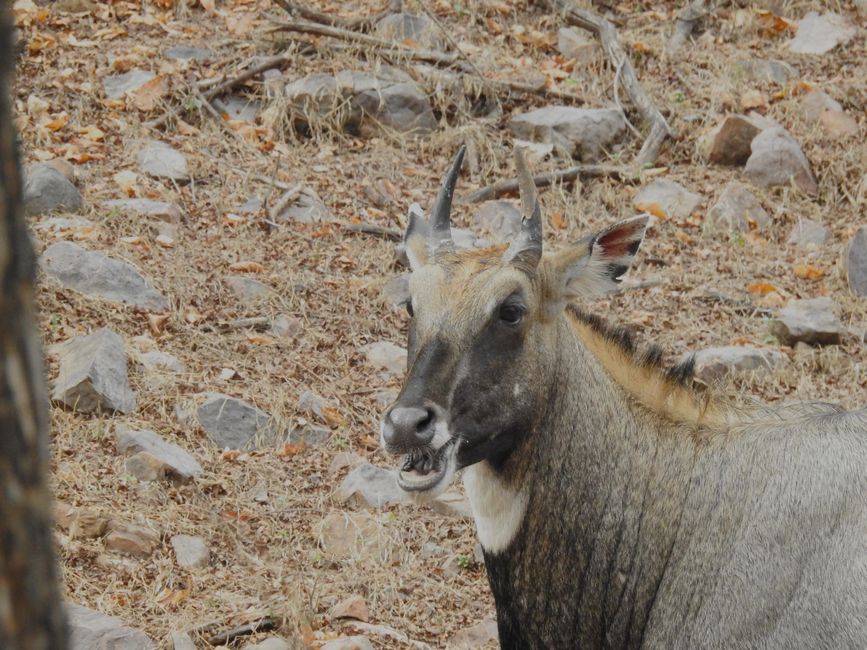
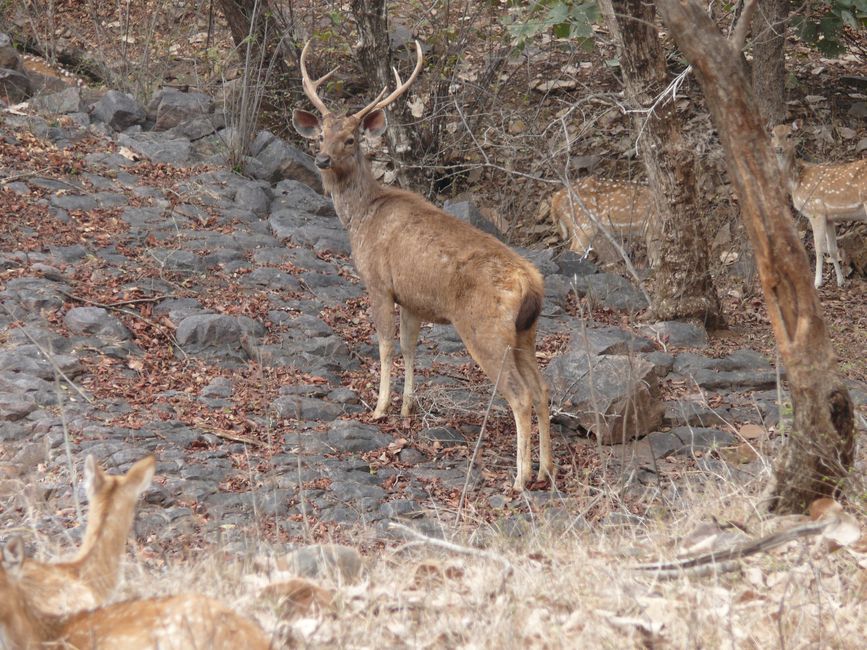
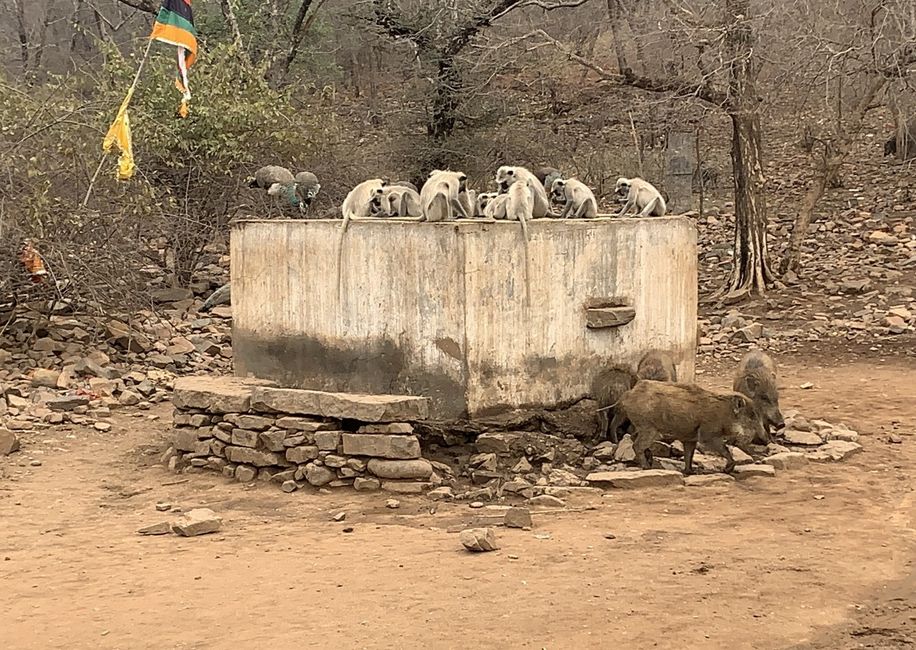
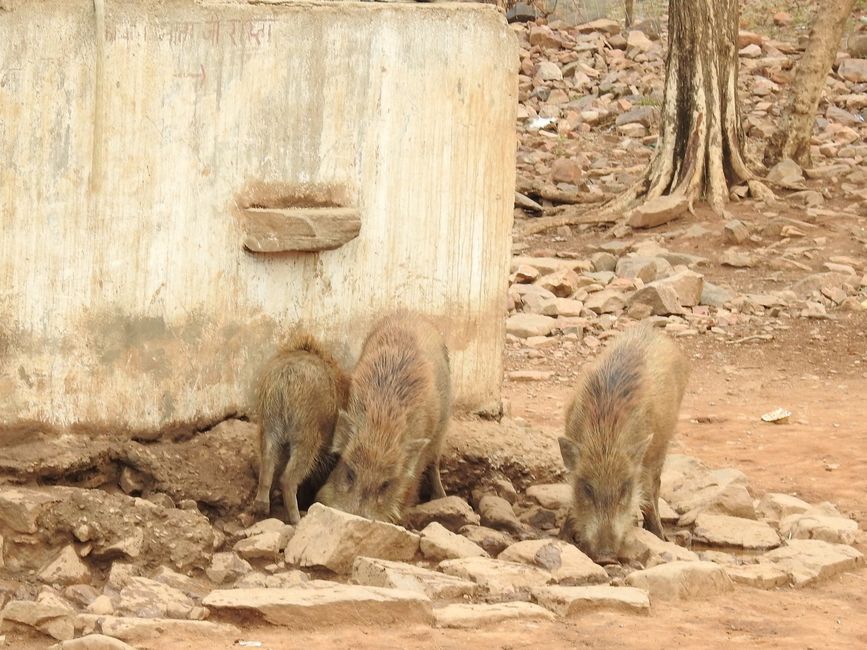
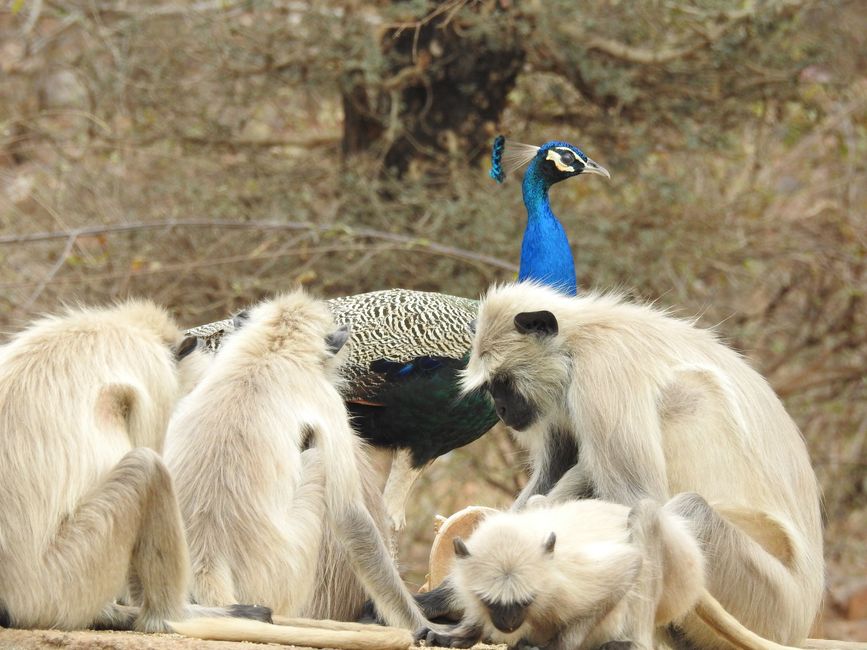
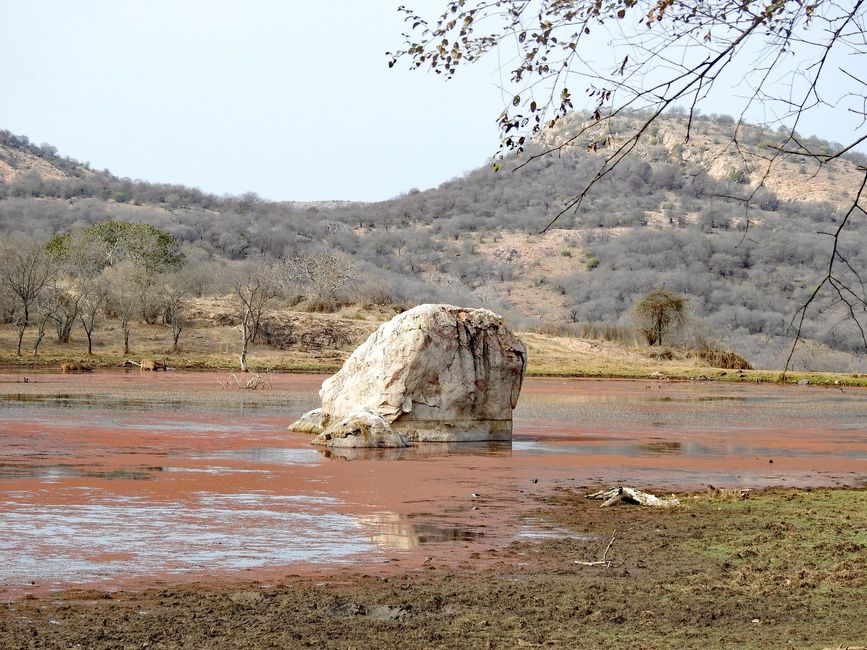
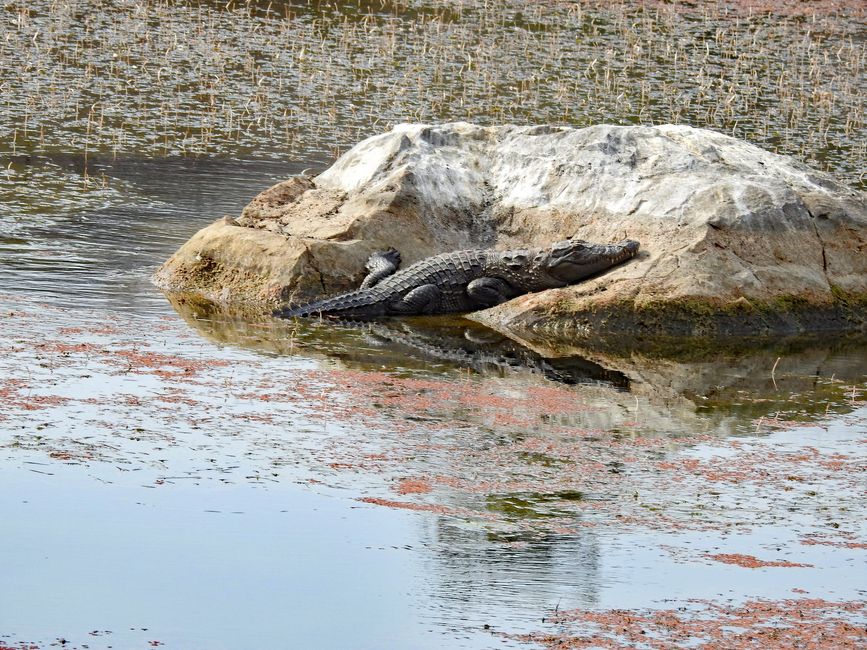
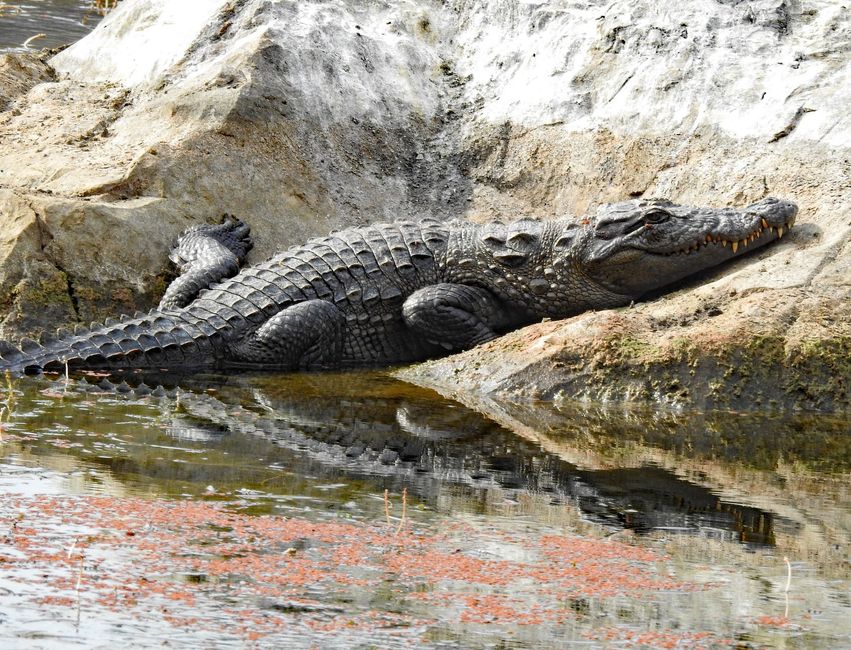
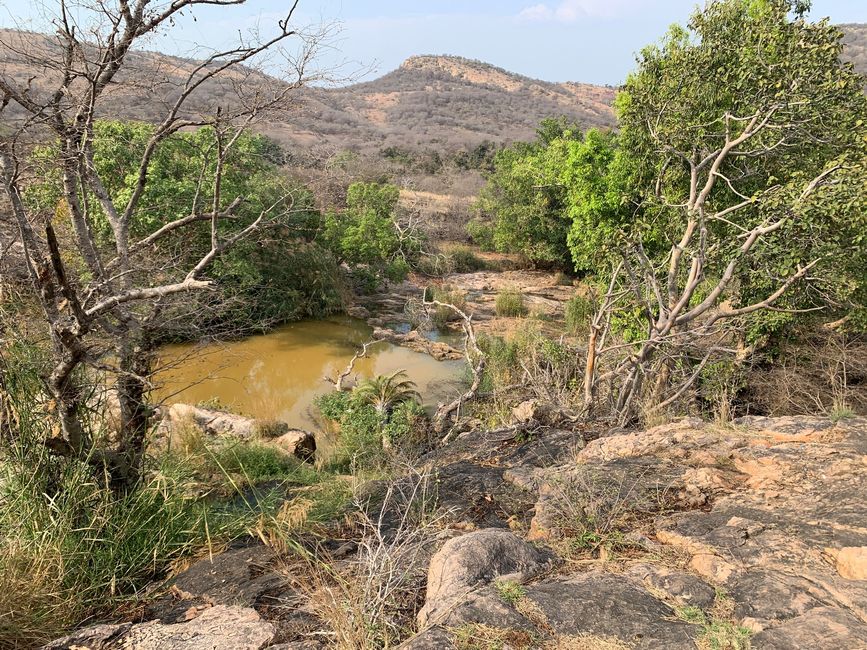
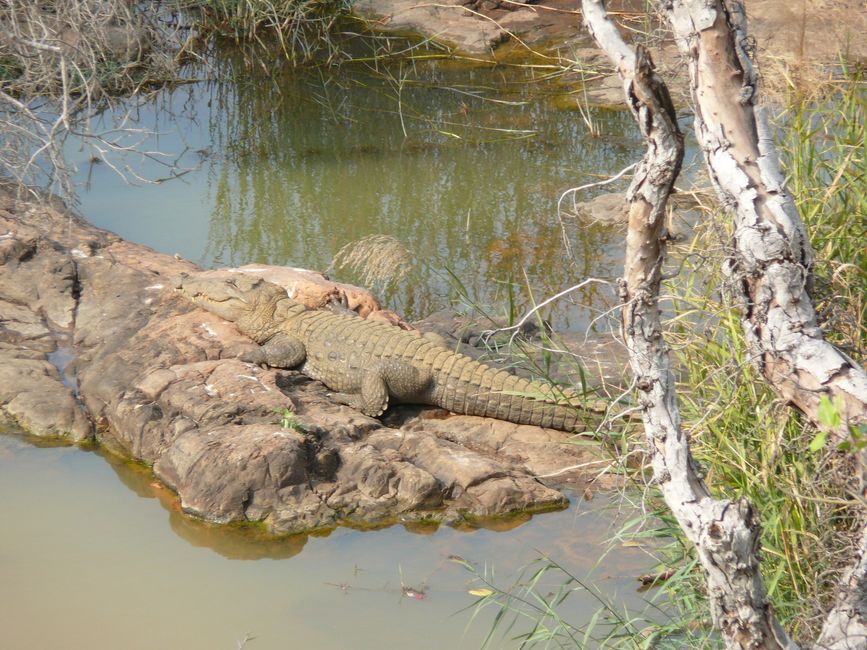
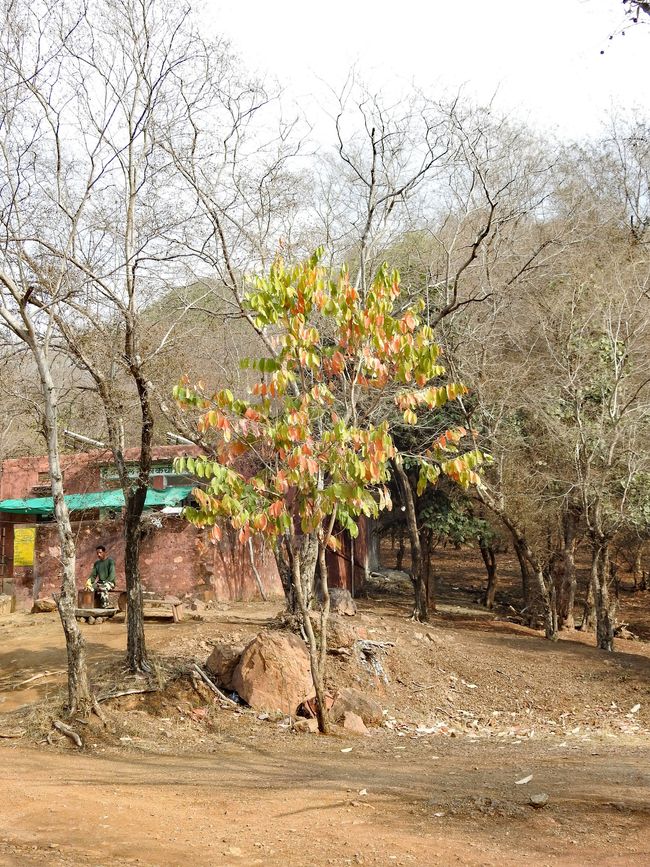
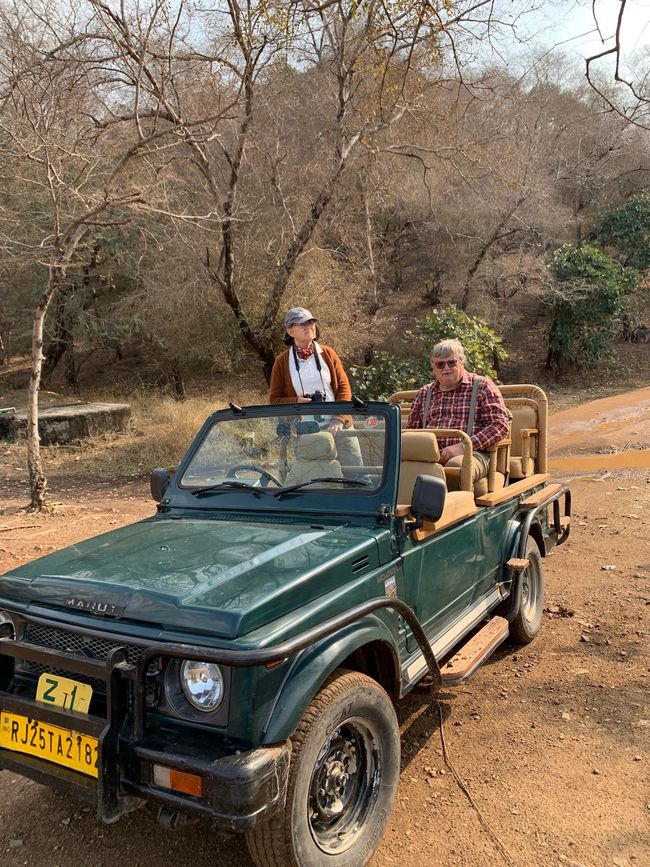
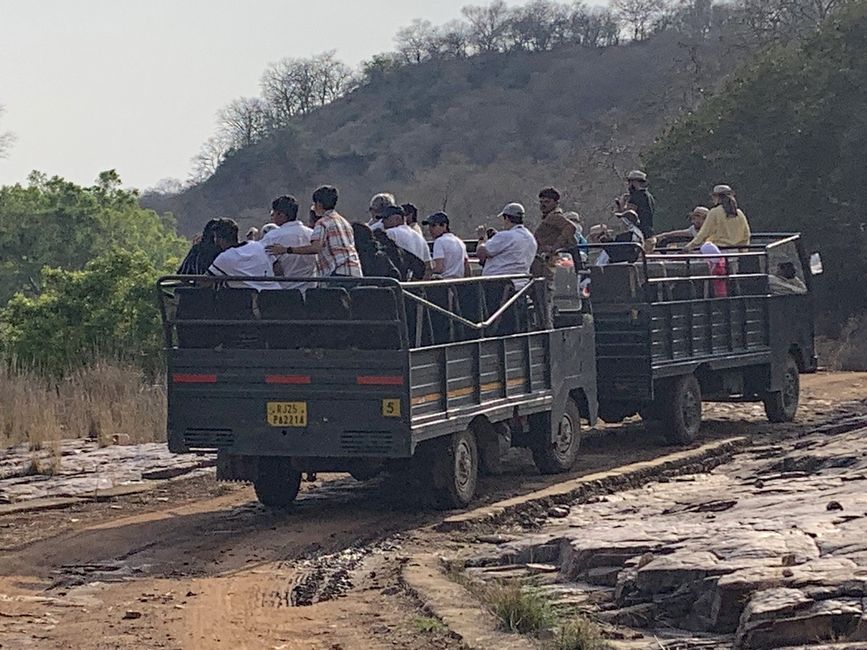
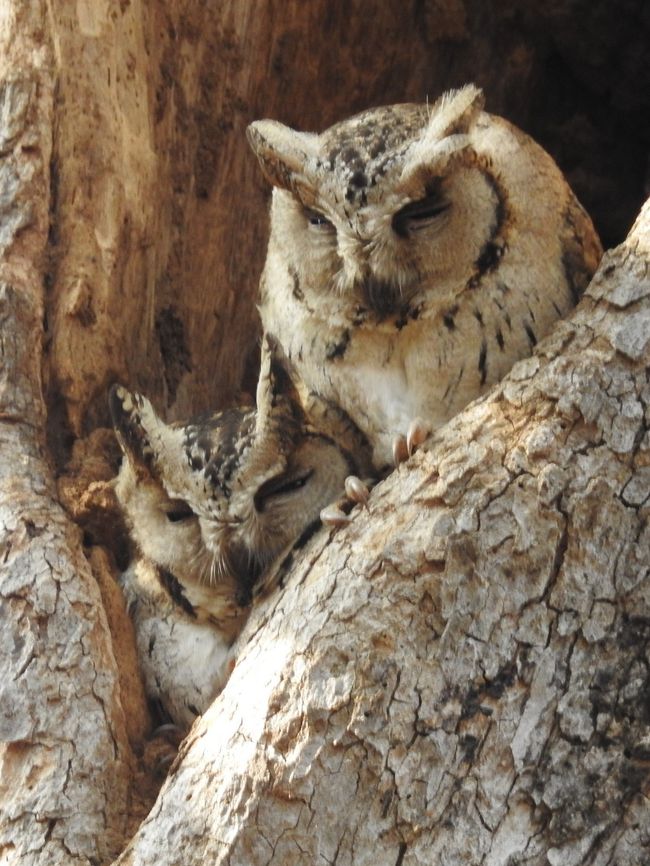
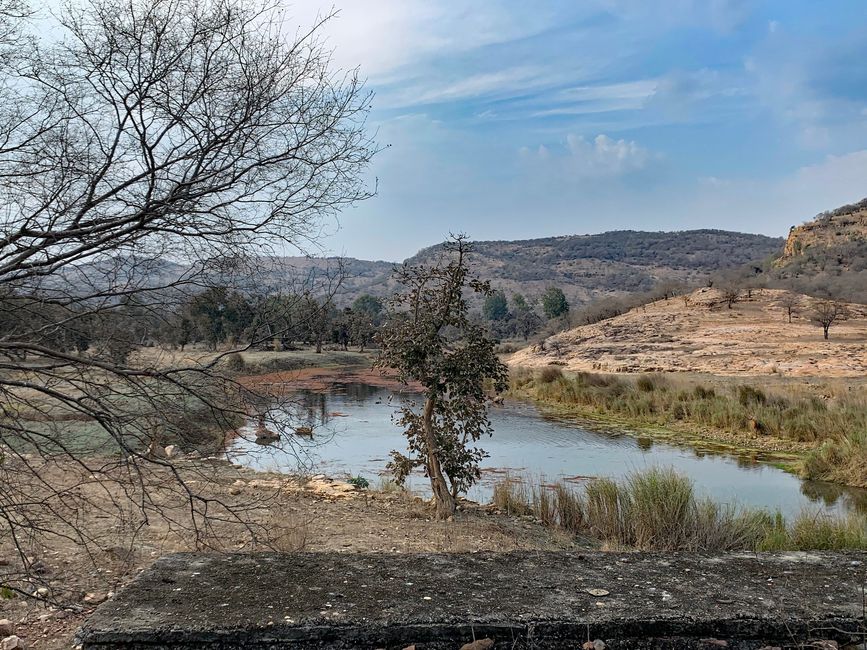
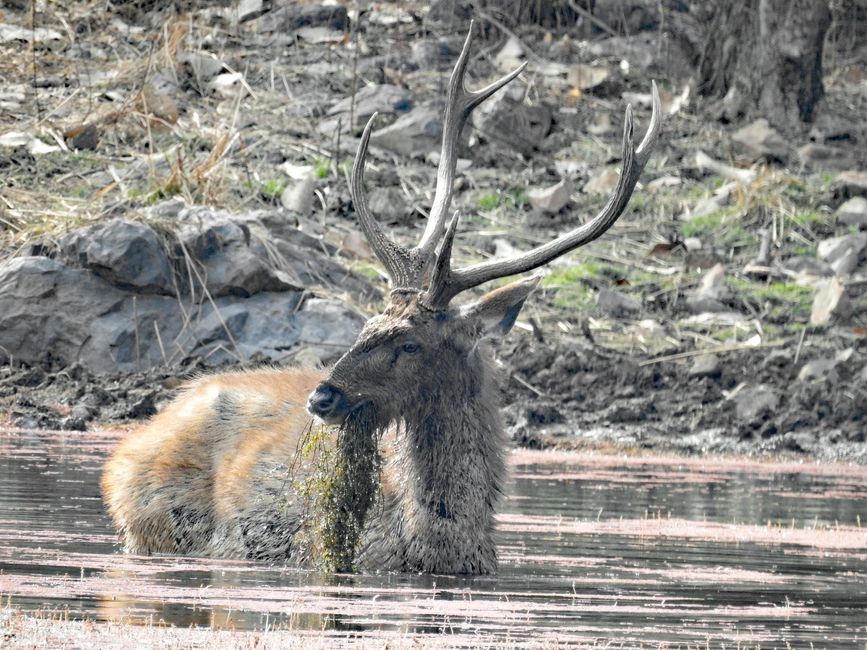
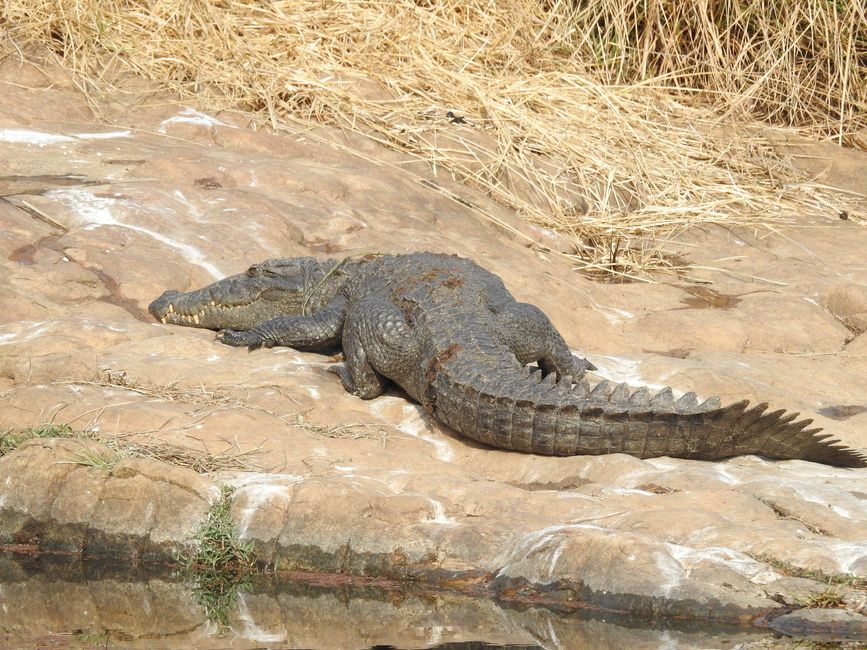
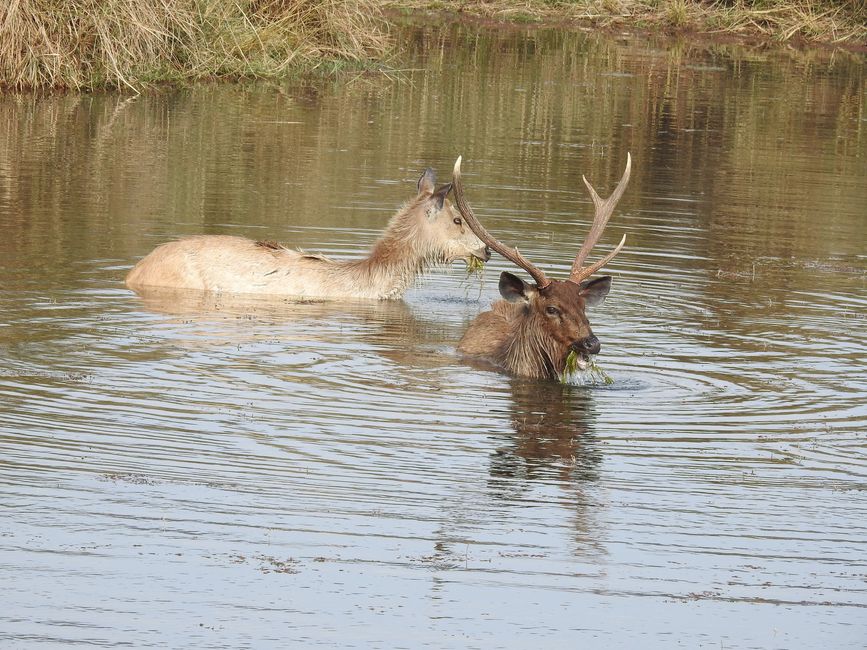
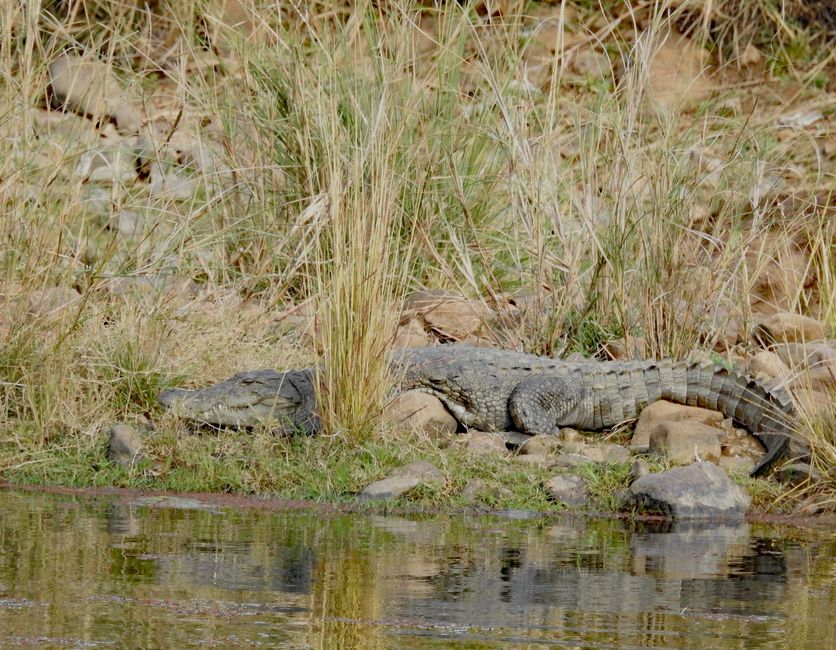
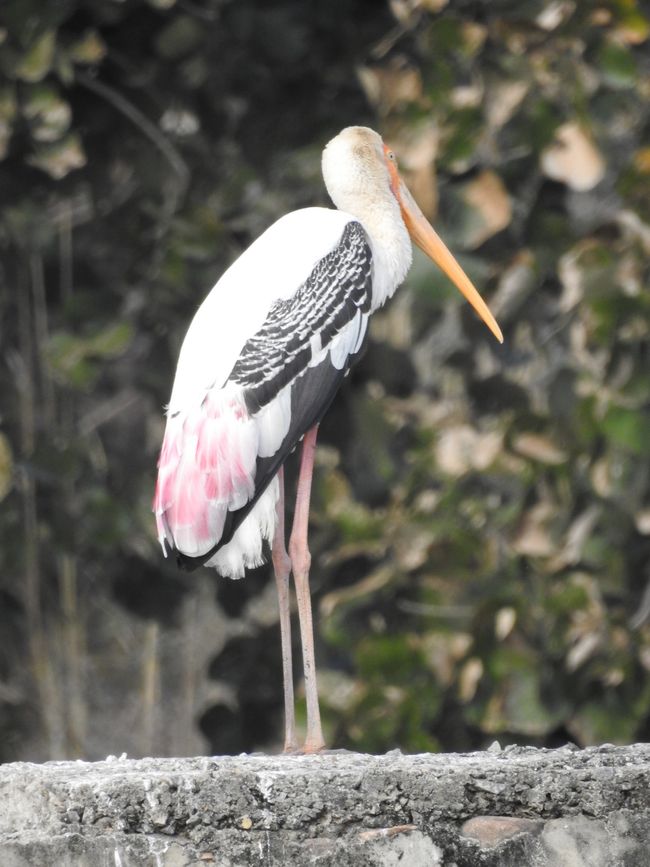
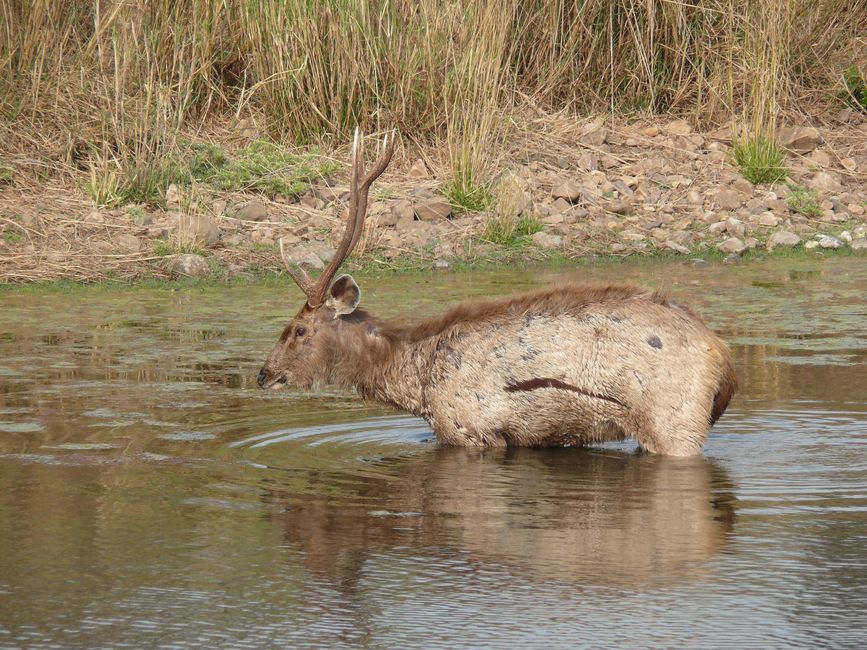
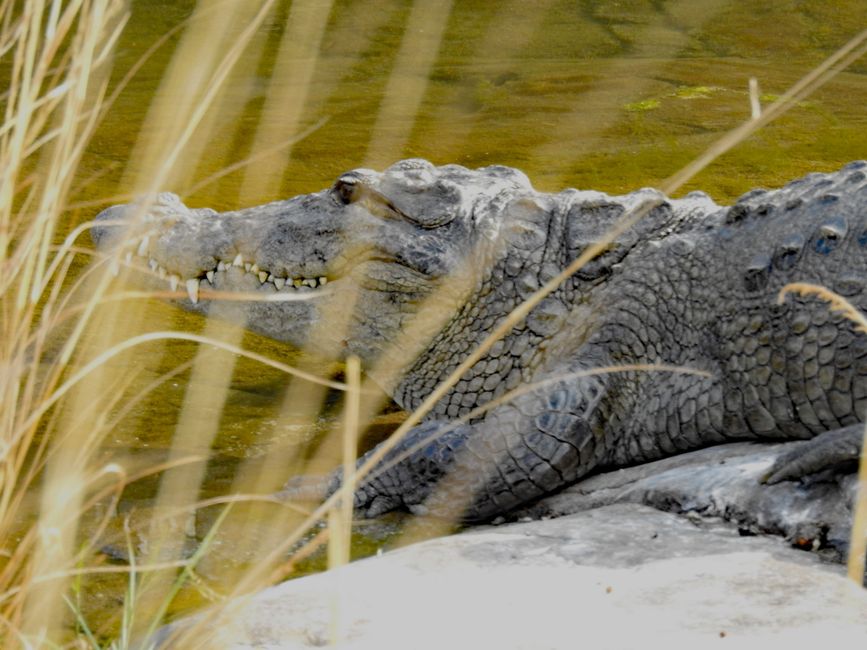
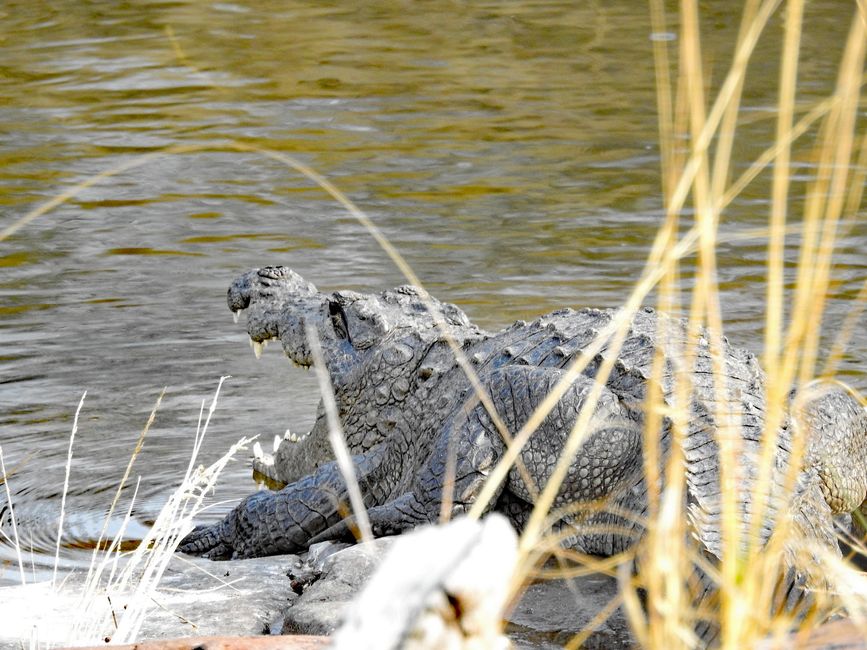
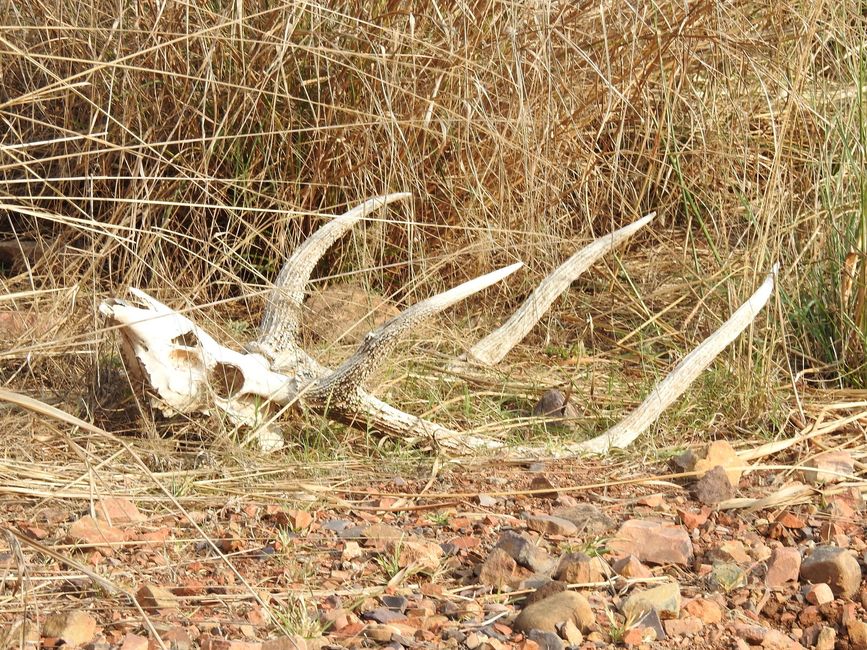
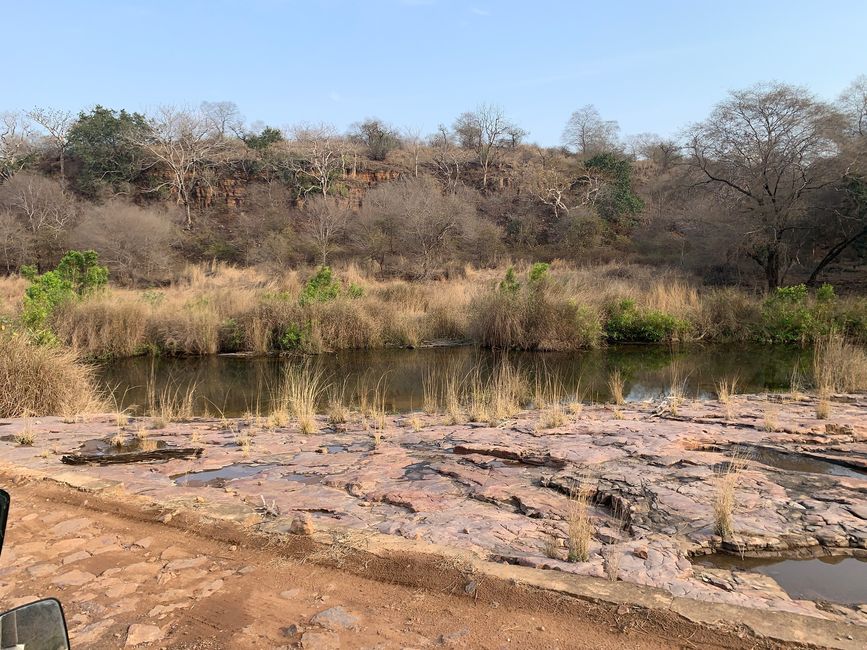
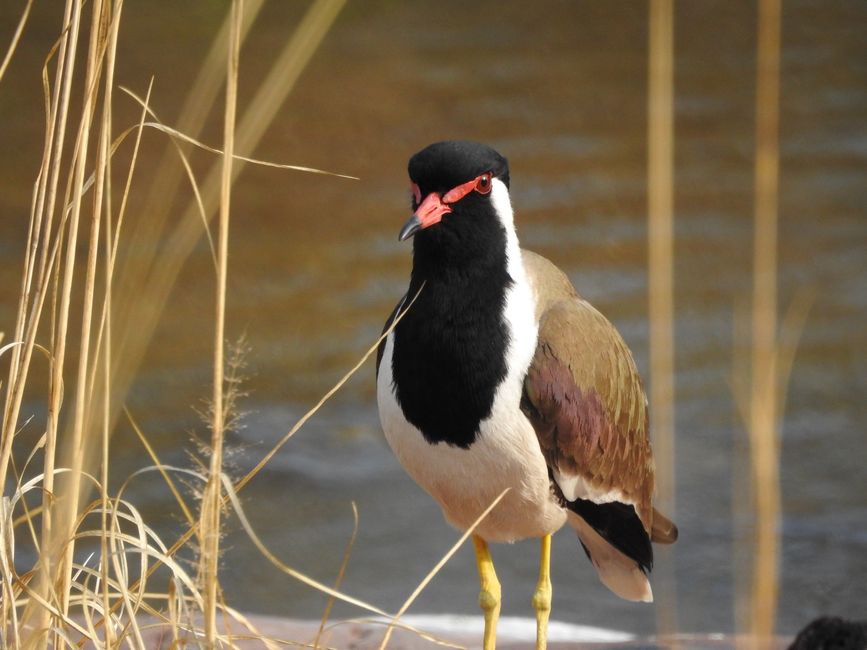
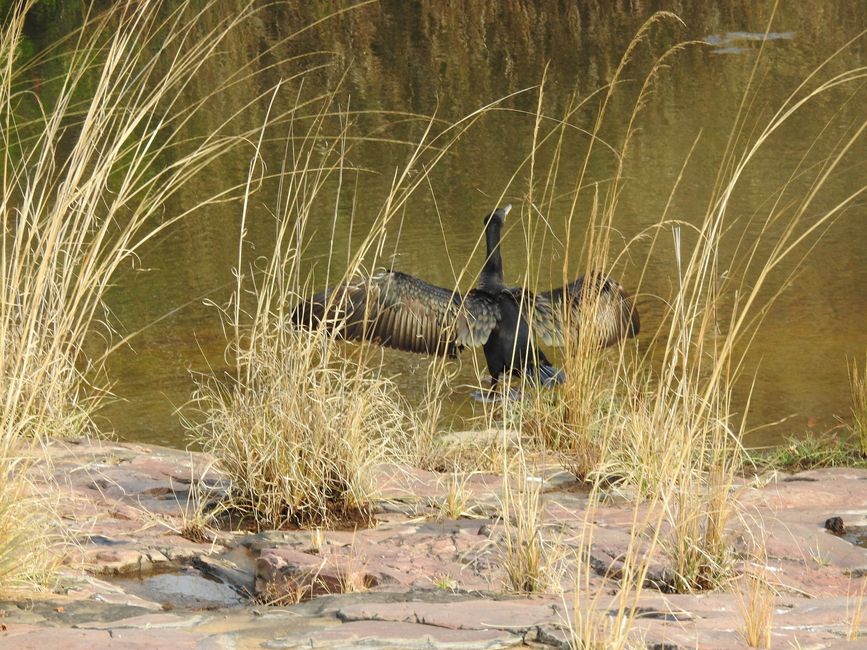
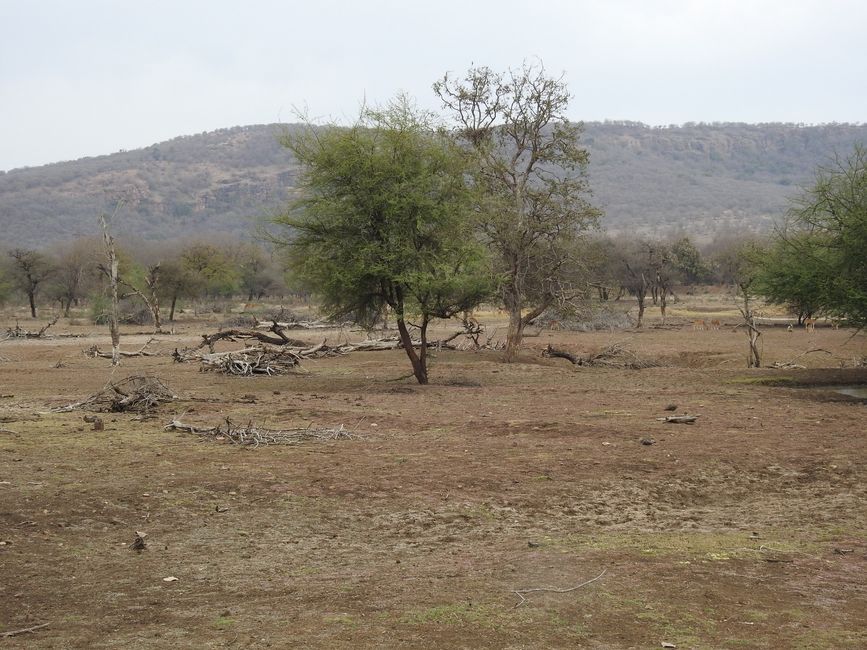
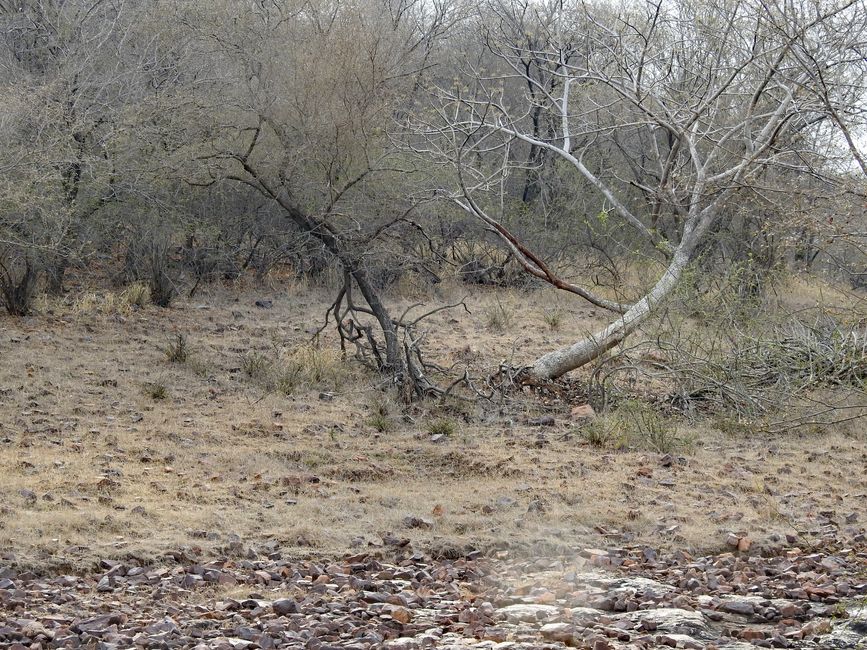
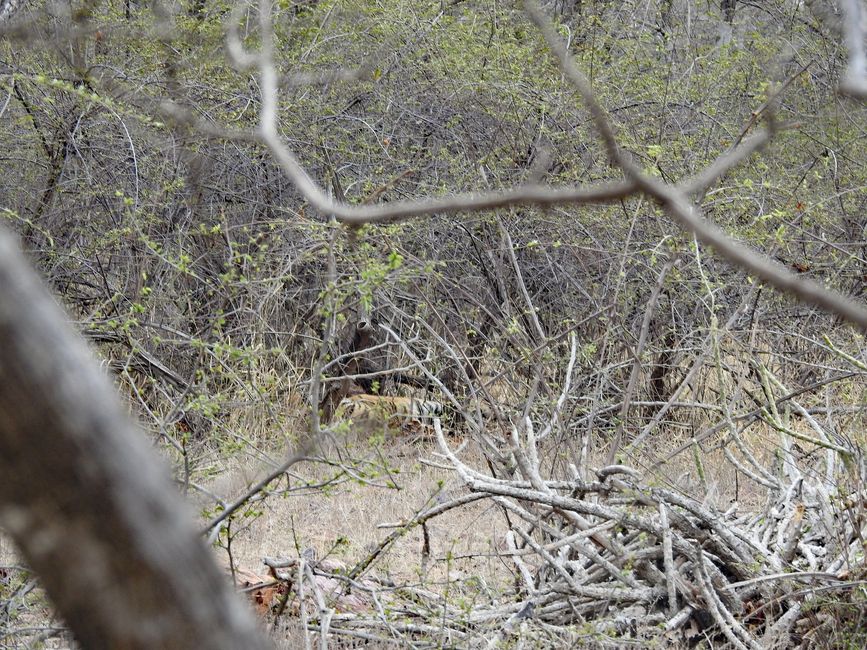
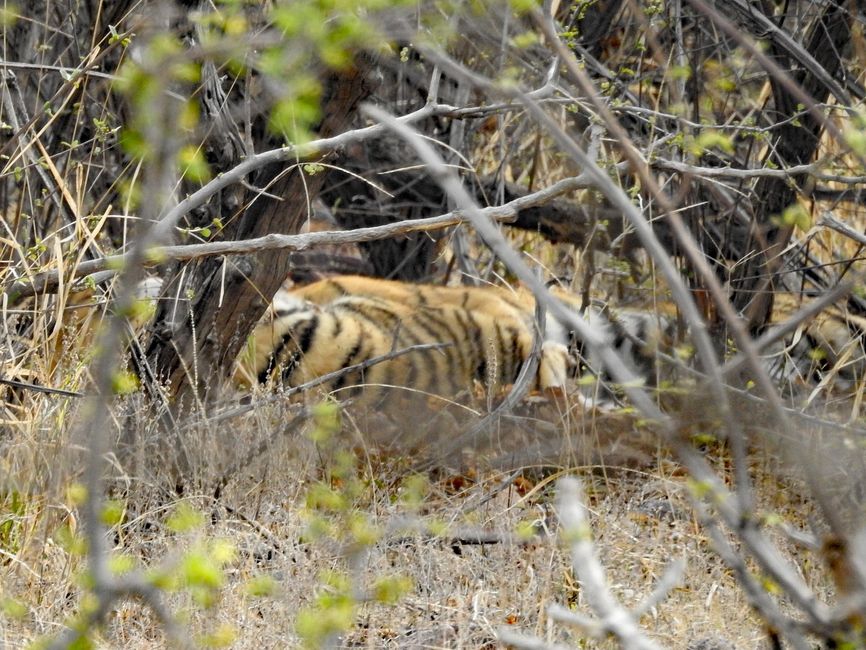
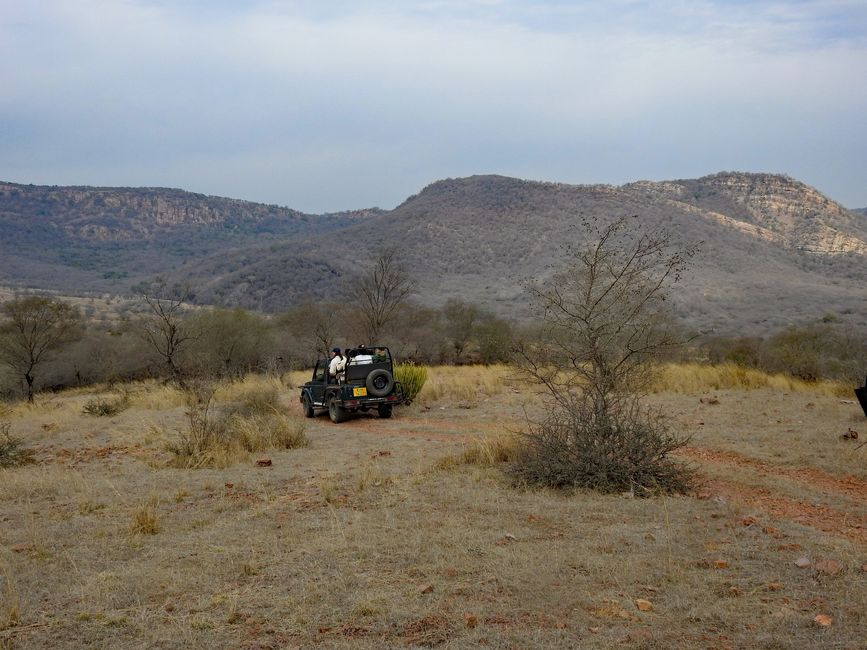
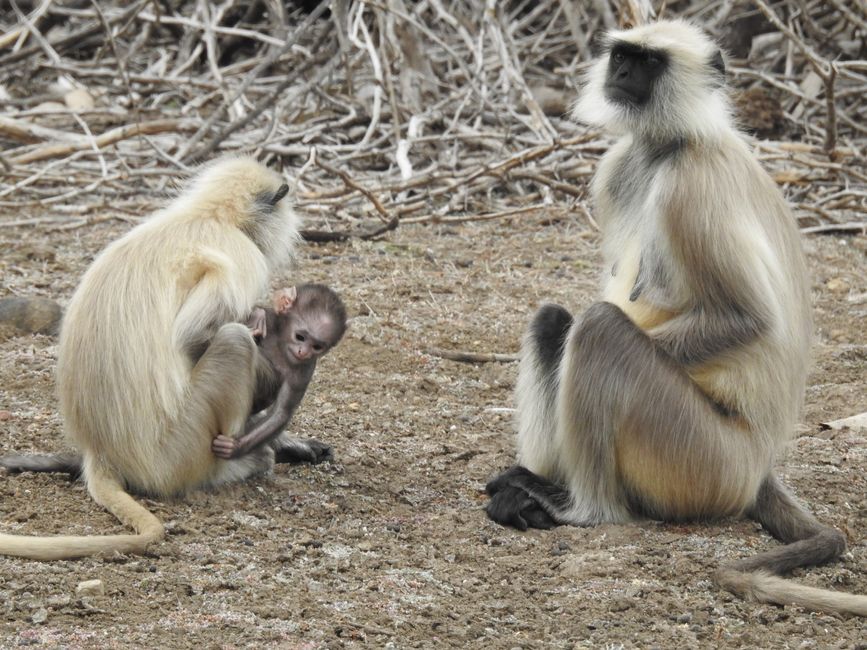
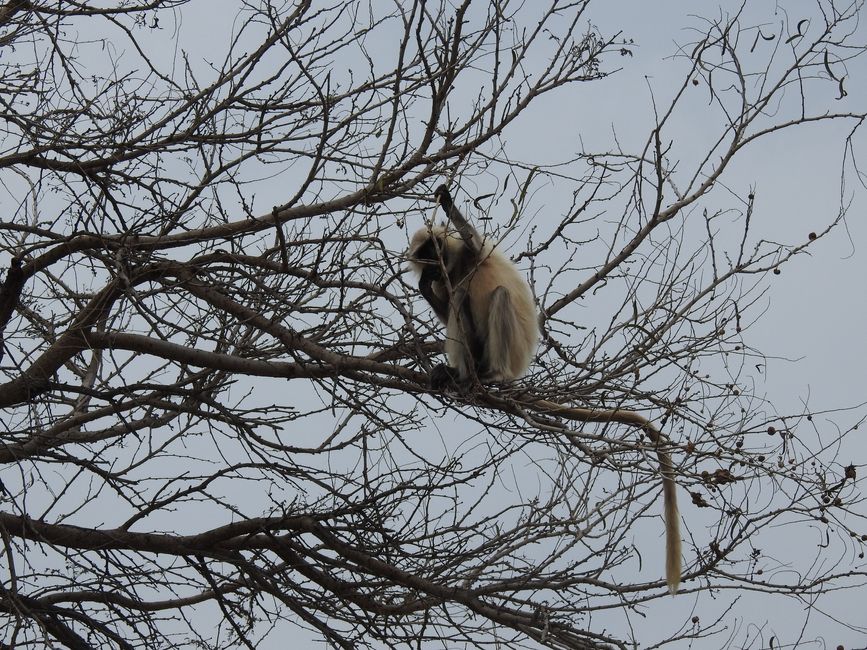
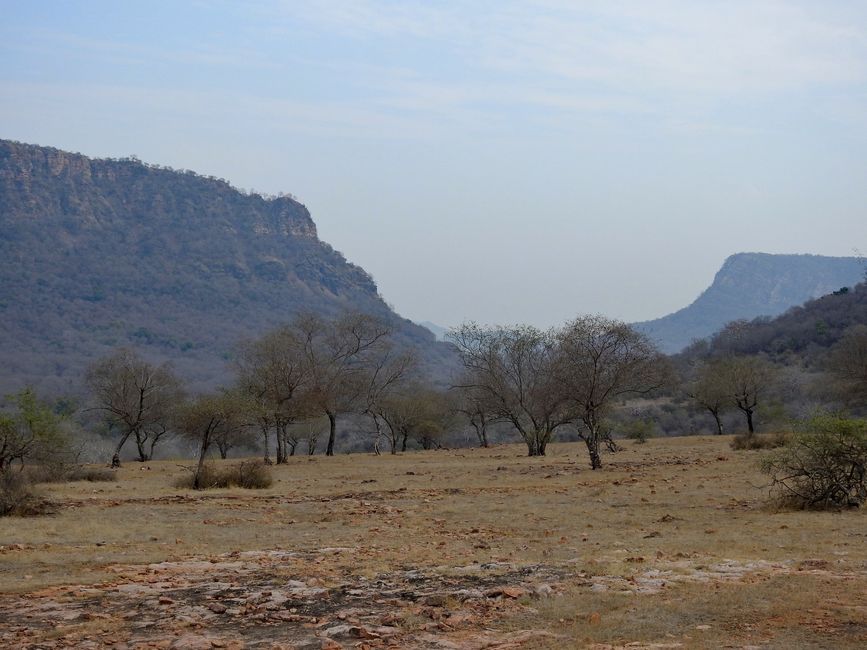
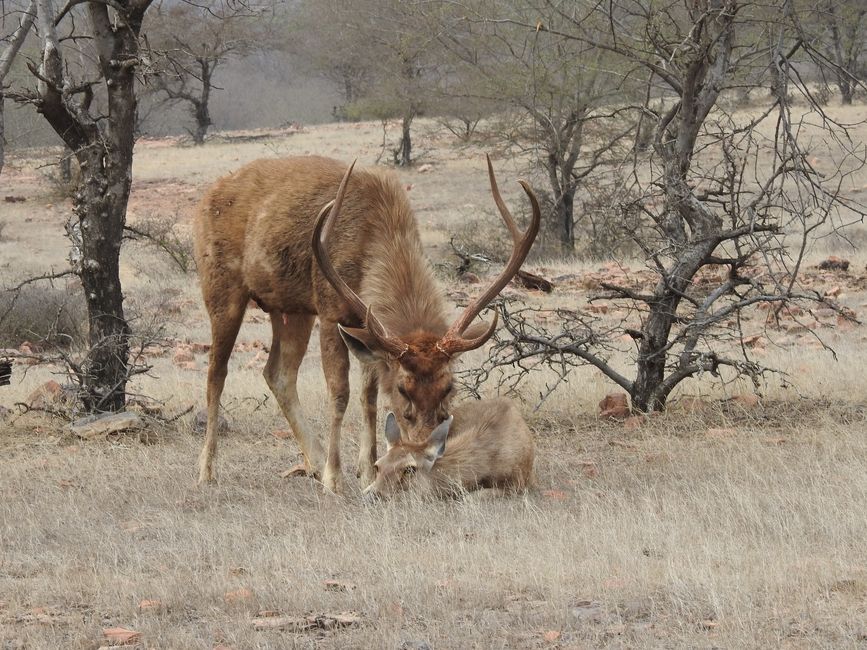
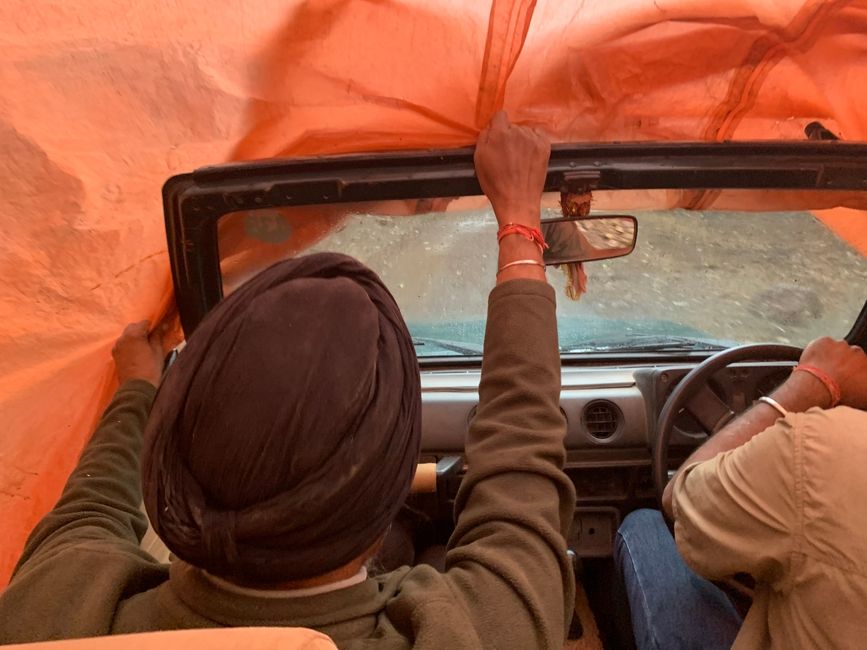
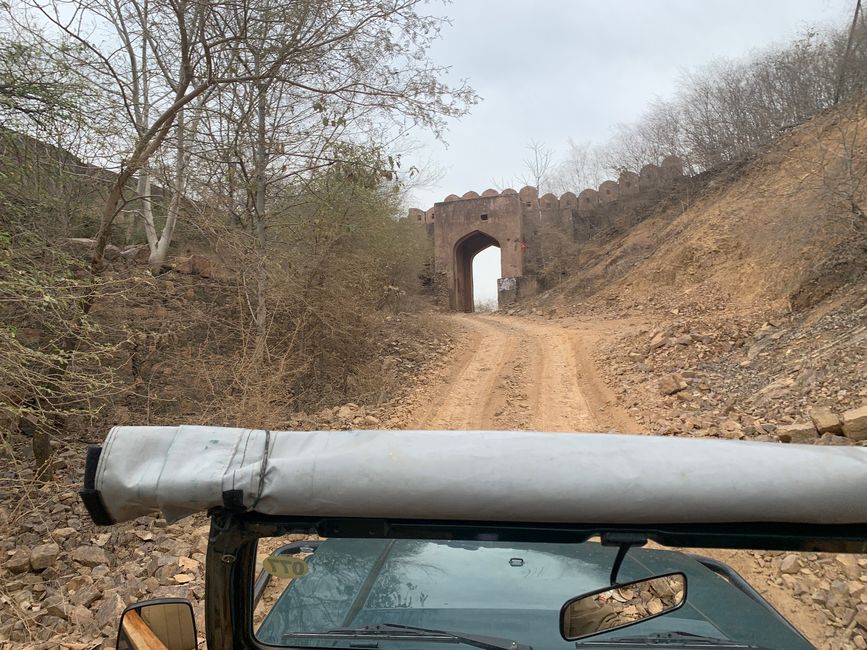
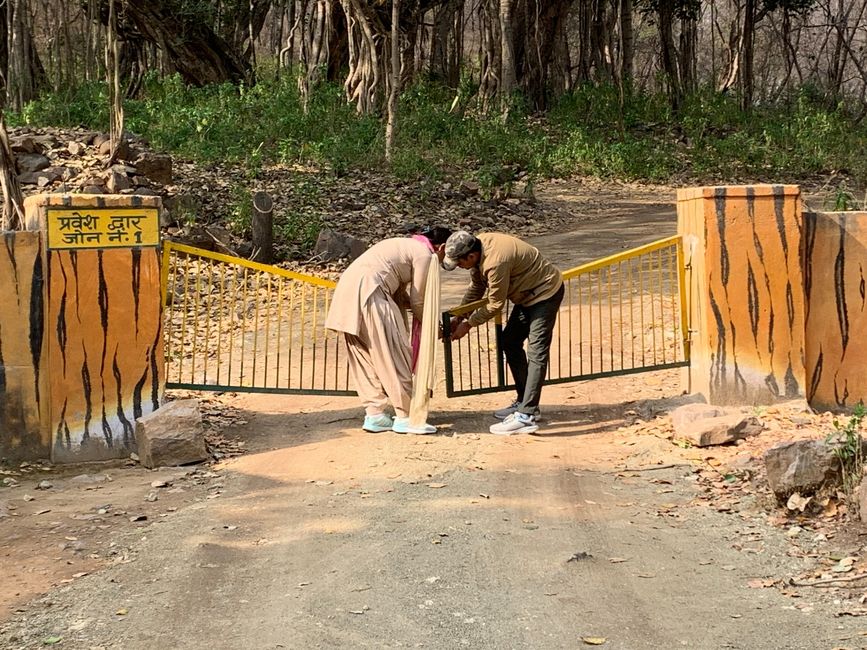
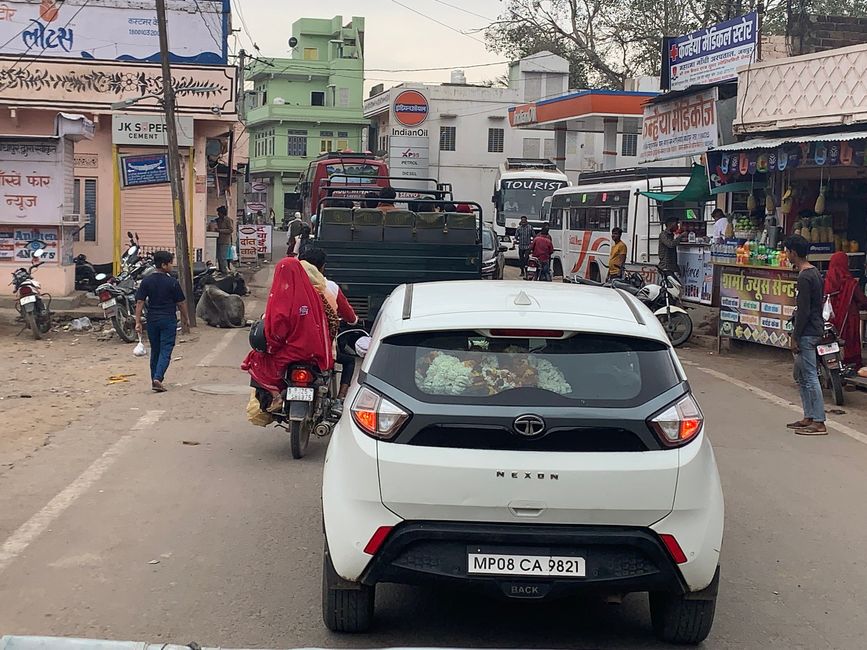
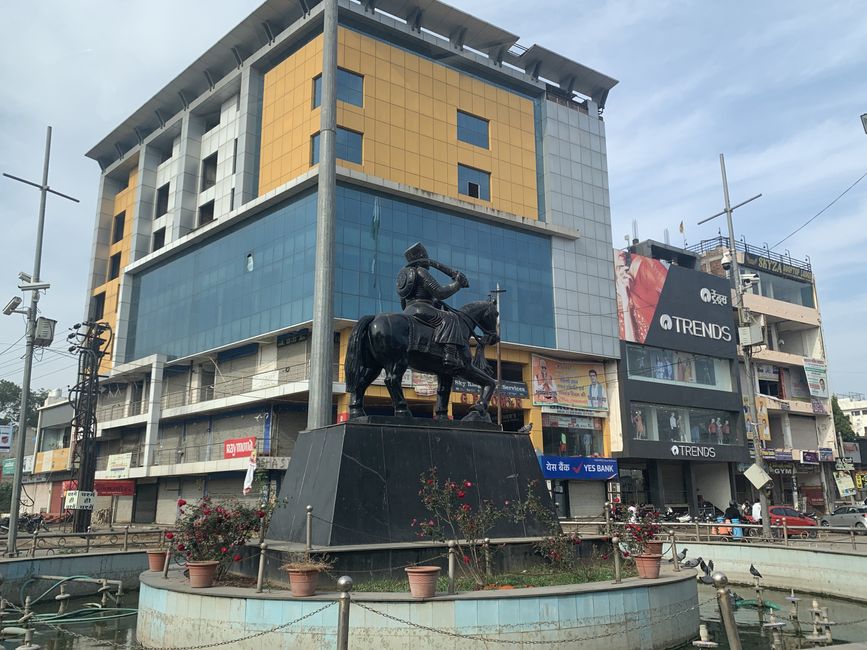
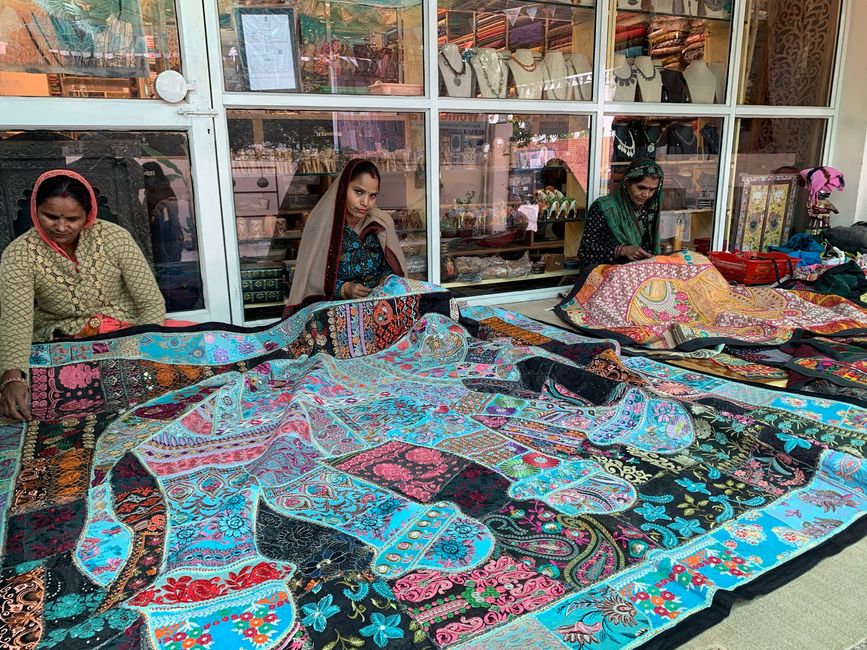
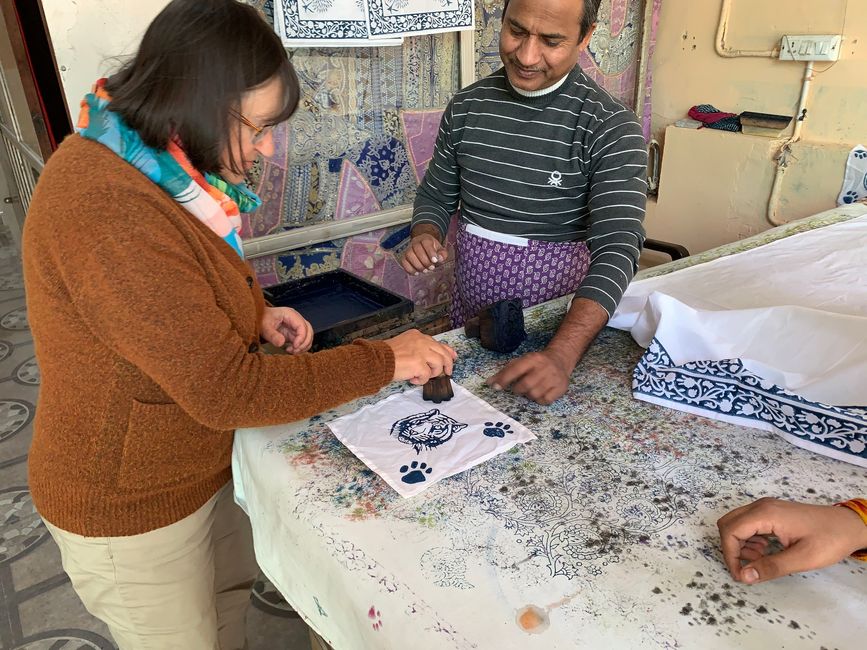
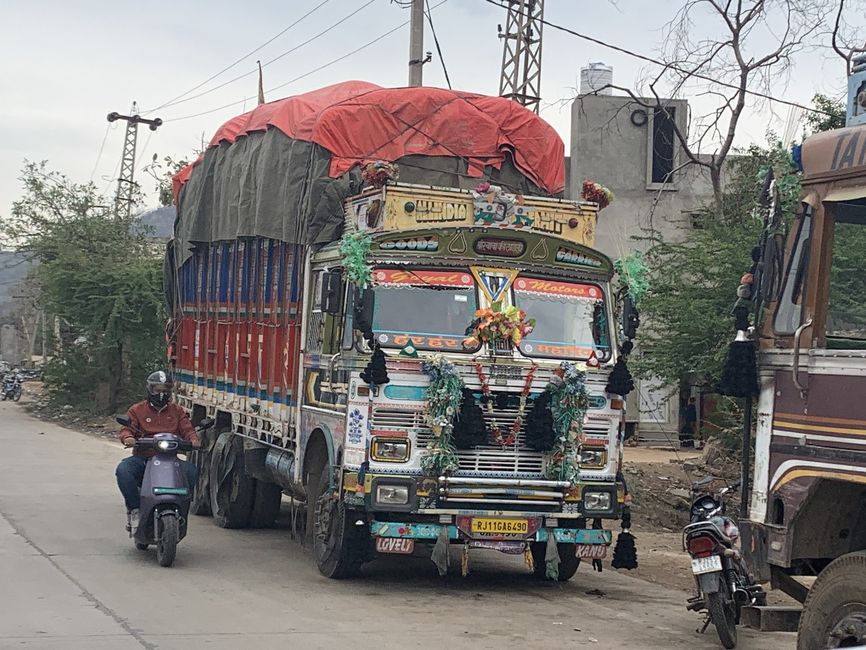
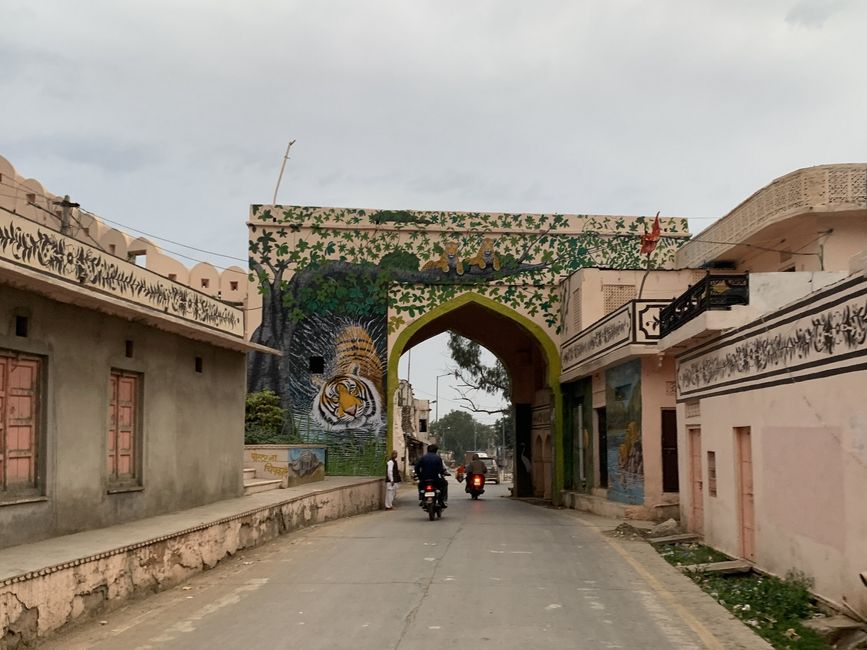
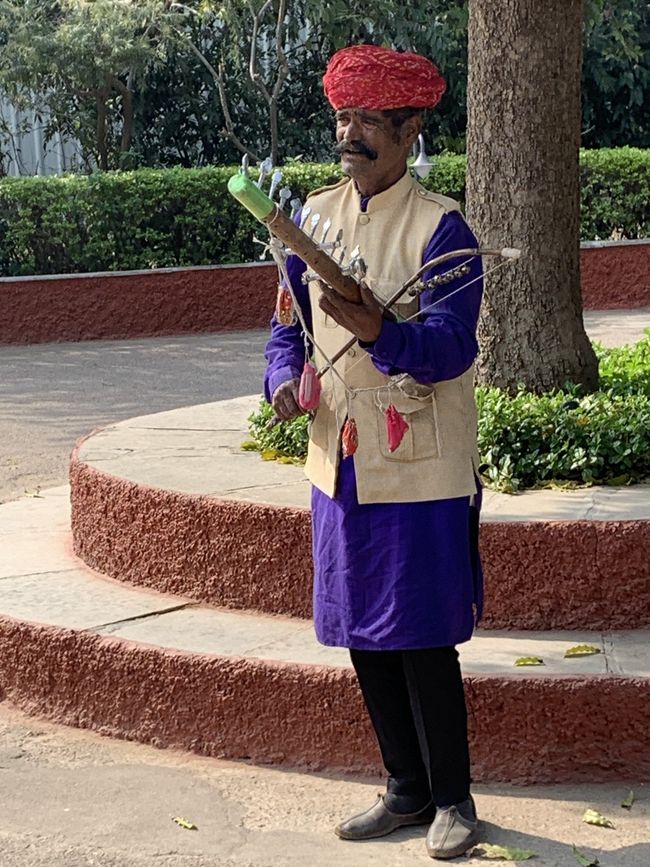
വാർത്താക്കുറിപ്പിലേക്ക് സബ്സ്ക്രൈബ് ചെയ്യുക
On the almost 300 km long and 6 hour drive from Pushkar to Sawai Madhopur we see a few “India Specials” again.
Sawai Madhopur is actually an unattractive small town with 120,000 inhabitants. Its importance is as the “entrance gate” to the Ranthambore National Park and as the location of all hotels; in India, no hotels are allowed to be built within the national parks.
Ranthambore National Park is one of the largest and most popular national parks in North India and is named after the historic Ranthambore Fort located within the park premises. With the Banas River to the north and the Chambal River to the south, Ranthambore lies on the edge of a plateau and covers an area of 392 square kilometers.
The park is praised as a place where you can definitely see tigers and leopards, but was actually included in our itinerary as a last chance for a tiger sighting if we hadn't seen one by then. Luckily that wasn't the case, Ranthambore wasn't good ground for us, despite 4 game drives we only saw "half a tiger" - lying lazily behind a bush for hours and not seeing a leopard. The landscape is beautiful, in addition to the “old friends” axis deer, nilgai, sambar, langur, wild boar, peacock and other birds, we saw some crocodiles as a “first” in India. Overall, it's a bit disappointing for us - also because we've now survived a total of 16 Rüttel game drives and are actually happy to no longer have to sit in the stubborn Maruti Suzukis.
We also visited the “Tribal Women Craft Shop” in town, which mainly sells fabrics and handicrafts from local production. Cosima successfully tried block printing there.
-------------------------------------------------- -------------------------------------
On the almost 300 km long and 6 hour drive from Pushkar to Sawai Madhopur we see a few “India Specials” again.
Sawai Madhopur is actually a rather unattractive small town with 120,000 inhabitants. Its importance is being the “entrance gate” to the Ranthambore National Park and as the location of all hotels; in India, no hotels are allowed to be built within the national parks.
Ranthambore National Park is one of the largest and most popular national parks in North India and is named after the historic Ranthambore Fort located within the park premises. With the Banas River to the north and the Chambal River to the south, Ranthambore lies on the edge of a plateau and covers an area of 392 square kilometers.
The park is praised as a place where you can definitely see tigers and leopards, but was actually included in our itinerary as a very last chance for a tiger sighting if we hadn't seen one by then. Luckily that wasn't the case, because Ranthambore wasn't good ground for us, despite 4 game drives we only saw "half a tiger" - lying lazily behind a bush for hours and not seeing a leopard. The landscape is beautiful, in addition to the “old friends” axis deer, nilgai, sambar, langur, wild boar, peacock and other birds, we saw some crocodiles as a “first” in India. Overall, it's a bit disappointing for us - also because we've now survived a total of 16 shaking game drives and are actually happy to no longer have to sit in the stubborn Maruti Suzukis.
We also visited the “Tribal Women Craft Shop” in town, which mainly sells fabrics and handicrafts from local production. Cosima successfully tried block printing there.
വാർത്താക്കുറിപ്പിലേക്ക് സബ്സ്ക്രൈബ് ചെയ്യുക
ഉത്തരം
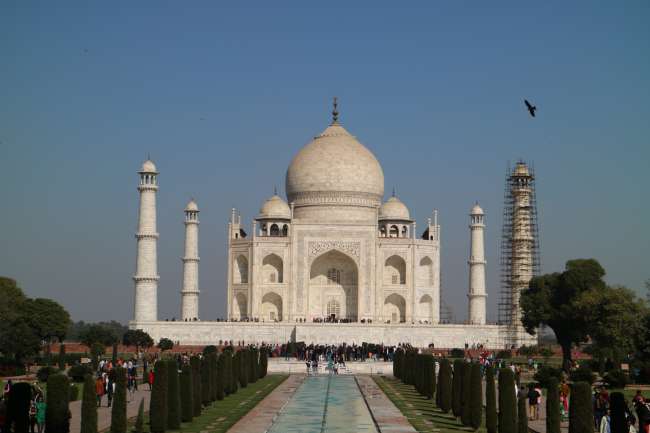
യാത്രാ റിപ്പോർട്ടുകൾ ഇന്ത്യ
